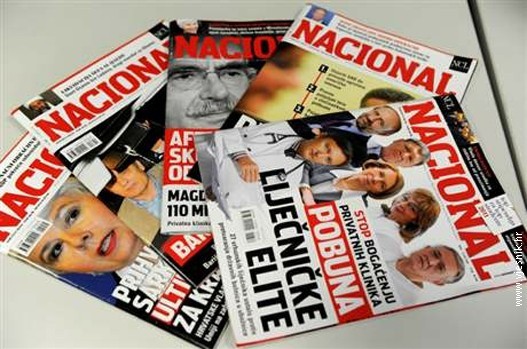
The Case of Pukanić
The Regional Coupling of Politics, Crime and Media
The social milieu that emerged in post-conflict transition Balkan societies, marked by a chronic weakness of the state institutions and the dominance of powerful criminal structures, favoured the occurrence of extremely complex coupling of different influences that permeated the spheres of politics, business, crime, media and judicial system. In these complex "Balkan games", it often happened that yesterday's friends, with seemingly identical interests, would become mortal enemies overnight; but also, the strongholds based on mutual interests would appear and infiltrate inside the war conflicting parties. Thanks to this set of circumstances, the business originating from war profiteering, even decades after the end of the war, is still taking place and follows the special rules that fluctuate within a wide amplitude, from the starting point of the regular business based on corporate principles, to the brutal application of methods and rules that apply to "business" ventures outside the law. By means of the system of communicating vessels, following the flows of interest, the ambivalence in the economic sphere is reflected in all other areas of social life, where politics with her stakeholders plays a particularly important role. In this merciless game with no rules, some purely criminal events often served as an ideal tool for dealing with political and business opponents, and one of the key features of the “Balkan games without frontiers” was the abuse of political and security institutions, as well as the instrumentalization of the media as the most suitable means for effecting influence on public opinion and political structures. One of the paradigmatic cases in which policy, intelligence and security structures, judicial institutions, the media and the underworld were found in synergy, was a case of murder of Ivo Pukanić, the owner of the Zagreb weekly "Nacional".
Ivo Pukanić and his colleague Niko Franjić were murdered on October 23rd, 2008 in the parking lot of the editorial office of the weekly "Nacional", from the detonation of an explosive device as they were entering Pukanić's car. This double murder, which was carried out in Zagreb the city centre, deeply upset the Croatian public and resulted in vigorous police action and, as it was then called, the close cooperation of investigative authorities of the former Yugoslav republics in an action under the operating name of "Balkan Express". Soon, eight people were arrested who were tried on two separate trials - one before the County Court of Zagreb and another before the Special Court in Belgrade. In these trials, brothers Robert and Luka Matanic, Željk Milovanović, Bojan Gudurić, Slobodan Đurović and Amir Mafalani, validly convicted; Milenko Kuzmanović is waiting for a retrial, while Sreten Jocić aka Joca Amsterdam was acquitted of the charges in accordance with the final verdict. To date, neither the motive of nor the person of persons who ordered this serious crime were discovered.
This whole case, however, was accompanied by numerous controversies, starting from the Pukanić’s connection with Croatian and regional underground, through a very strange and unprofessional behaviour of the Croatian authorities during the investigation, up to, motivated by political considerations, the decision of the authorities in Serbia that its judicial authorities, despite the absence of evidence, take over prosecution of the person or persons who ordered the assassination. Due to the numerous abuses and apparent political influence on the investigation itself, this case became a historically example, which is completely laid bare the true nature of the relationship between the political authorities, security apparatus and criminal structures in Croatia and Serbia, whose government, in order to achieve certain political goals during the Pukanić’s murder investigation, openly abused state institutions (security services, investigative authorities and judicial apparatus), but also controlled the media and the entire journalistic profession.
In such a way, the Croatian police and the Prosecutor’s Office, at the very beginning of the investigation, with no clear indication or any evidence, as a motive of liquidation of the owner of "Nacional", declared his writing about the so-called "tobacco mafia" (a series of articles from 2001), although in the meantime the weekly published a large number of new scandals, and even Pukanić was more often mentioned in the context of certain conflicts of Croatian criminal groups. Bearing in mind the controversial role that the assassinated Pukanić played in conflicts among the mafia at that time, it seems that the police too casually dismissed a possible link between the murder of Ivana Hodak, the daughter of attorney Zvonimir Hodak, that happened only twenty days earlier in Zagreb, which constituted a kind of warning to the client of her father and leader of one of the criminal clans, General Vladimir Zagorec. Zagorec`s clan at that time was in conflict with a criminal group of another Croatian general, Hrvoje Petrač, who was a close friend of Pukanić, while the owner of "Nacional", according to the testimony of his closest associates, intended to testify against Zagorec.
The evidence presented during the trial for the assassination of Pukanić, including the SMS correspondence of Pukanić and Croatian public prosecutor Mladen Bajić, in which the assassinated owner of "Nacional" as sources of potential danger to his safety, made no mention of so-called "tobacco mafia", all point to a small, or even non-existent likelihood that the "tobacco mafia" was to blame for the murder. The assumption about the fictional mafia as the ones potentially ordering the murder, was all the more unconvincing, if it was known that, from the publication of articles in Nacional on "tobacco affair", until the time of his murder, eight full years passed, but also that, earlier in the court, it was proved that most texts from that series were incorrect and ordered; even their very author, Jasna Babić, testified on this. [1]
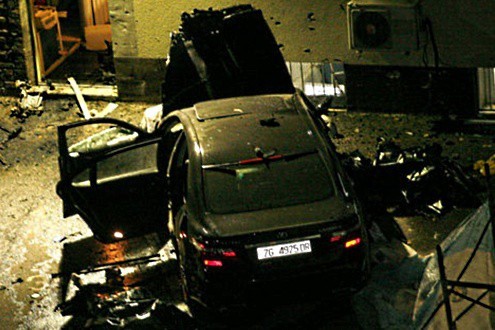
Cognoscenti of the situation in Croatia repeatedly warned that the local authorities, from the very beginning of the investigation of the murder of Pukanić, sought to relocate the entire case from the Croatian framework, in order to hide all visible facts about the extent of organized crime in the country and its links with the official institutions of the system. As a support of these claims, there were the first reactions of the government, in which the assassination was, without exception, called a "terrorist act", although, apart from the manner of execution, the criminal action did not contain any essential characteristics of a terrorist act (political objective, causing fear, random selection of victims ...). One can assume, that the Croatian authorities, which at that time were in a sensitive final stage of the European Union accession negotiations, aimed to find every possible way of avoiding the presentation of Pukanić’s murder as a result of a clash of powerful organized crime groups that ruled the Croatian underground. Discovering the level of the power of these groups, their prevalence and the relationship with the government, could seriously jeopardize and indefinitely postpone Croatian EU accession. Hence, the consensus among the political opponents, was easily reached and for the sake of "higher cause", the case was expressly exported to the east - to Serbia and Montenegro.
Simultaneously with the efforts of the Croatian authorities to get rid of the hot potato that before the European partners showed how much the situation was out of control, the authorities in Belgrade started to act, headed by the president Boris Tadić and his key operative, Miodrag Rakić, who, for their own political goals, decided to take over the prosecution of the person or persons that ordered this assassination. For this purpose, they used the fact that Slobodan Đurović Cardinal, best man of Sreten Jocić, was involved in the organization of the assassination, which was used as a sufficient reason to appoint a prime suspect. For this purpose, Jocić's personality was suitable for several more reasons. He was undoubtedly a person of criminal background, with thick police records, which at the time was tried for another murder; that’s why there was enough a space for trading with him. This trading implied an offer of forgiveness of all Jocić’s previous sins, if he would assume the blame for the assassination of Pukanić (as the organizer, but not the one who ordered it) and if he would accuse of ordering the murder, the former regime's number one enemies - Milo Đukanović, the Prime Minister of Montenegro and a businessman close to him, Stanko Subotić, [2] who were the main target of the attack during the "tobacco affair" seven years earlier.
The political significance and motives for the taking over of the case from Serbia, were confirmed by the fact that the Serbian authorities were engaged in solving of the case that shook the neighbouring country, while at home, for years, very important cases were being consciously neglected, such as the discovering of the political background of the assassination of the Prime Minister Zoran Đinđić, but also by the murder of Serbian journalists - Slavko Ćuruvija, Milan Pantić and Dada Vujasinović. Although the logic of the law and the principle of division of the territorial jurisdiction between the bodies of two neighbouring countries, would designate the investigation of these crucially important cases related to Serbia, as a priority in the work of Serbian services, the logic of the imposed political imperatives dictated that a case which did not have much to do with Serbia and the situation in Serbia, should become the top priority, since at a given point it could serve to the authorities of that time as a means for achieving hidden political goals and concealment of, at that time, of widespread abuse of the institutions of the executive authorities.
Who was Ivo Pukanić?
The assassinated owner of "Nacional", Ivo Pukanić was an extremely controversial person who never hid his connections with various interest, even criminal, groups. In the early nineties, Pukanić stepped into the media sphere as a photographer of nude beauty pageant misses eager to gain show business glory. A few years later, circumstantially, together with a group of journalists he found his place as one of the founders of the weekly "Nacional". At first the newspapers stood out from the crowd by writing against the former regime of Franjo Tudjman, but after the breakup of the original founders, its majority owner became Pukanić, who was relatively inconspicuous until then. Although the public is not fully acquainted with the way Pukanić became the owner of "Nacional", the story is made even more mysterious by the claims of those familiar with the entire story about this weekly, saying that the majority of shares was bought from the previous owner by one of Tudjman's bankers from the Bank of Dubrovnik, which collapsed after the time of tycoon times and one great robbery. How this package of shares later ended up in the hands of Pukanić has remained a mystery, just as the origin of the greater part of his substantial property. Pukanić's connection with William Montgomery, the former USA Ambassador at first to Croatia and then in Belgrade, dates from the period of the nineties and the owner of "Nacional" regularly played tennis with him and was under the protection of Montgomery at Tudjman's time. Montgomery, as the unabashed mentor of Pukanić, was, according to the testimony of the journalist Jasna Babić, the gray eminence of Pukanić’s "Nacional" and one of the initiators and the creators of the "tobacco affair".
While during Tudjman’s reign, it was possible to somehow wrap up the obsessive and lucrative dealing with affairs into the wafer of struggle against authoritarian rule and conceal it with the mantle of the fight for democratization of the country, in the post-Tuđman era, "Nacional" openly became the organ of various, often even criminal, interests, but also a means of racketeering wealthy individuals whose affair Pukanić managed get hold of. Although he publicly denied that he was engaged in media-racketeering, Pukanić's enormous, wealth mostly gained overnight, including the purchase of a house in Zagreb of several million euros, clearly indicated that the assassinated owner of "Nacional" was least of all busy with proper journalistic work. Thus, in parallel with the affairs "National" wrote about, or kept them in silence in return for a significant compensation, the number of affairs related to Ivo Pukanić was growing. With the help of a complex game between the secret services and mutually warring criminal groups arising from the "patriotic" profiteering during the wars of the nineties, Pukanić reached the pinnacle of his career when in 2003 he published an alleged interview with, at that time the fugitive, General Ante Gotovina. Although the authenticity of the interview was never confirmed (in some circles it is said to have been invented), it served as a pretext for the Croatian Journalists' Association to reward Pukanić with the annual prize for journalism.
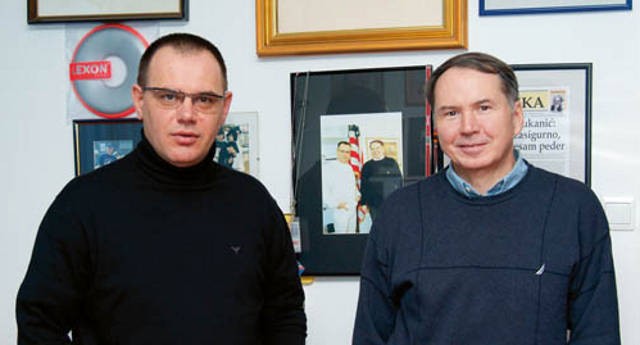
Having left far behind the times when by means of writing against the machinations of the Tudjman regime, he was doing a socially useful thing, in the 2000s, "Nacional" turned into an obscure organ in charge of creating affairs and an instrument for media racketeering on behalf of its owner. Thus, the articles on the "tobacco mafia" in the Balkans, crime and various politicians, the tycoons, and even about the intelligence games found their place in "Nacional". The weekly published even the names and photographs of the main agents of the British Secret Service who allegedly worked in Croatia, Serbia and Bosnia and Herzegovina. By working around the clock to obtain more power, luxury cars and watches, villas at the Ribnjak pond (elite neighbourhood) and other properties, the owner of "Nacional" became a major player of great political affairs in the country and the region that were related to the capture of Ante Gotovina, the operation of the British secret service in Croatia, the weakening of the Serbian Prime Minister Zoran Đinđić and pressure to abdicate Milo Đukanović.
In the last year of his life, especially after an unsuccessful assassination attempt on him in March 2008, Pukanić's property map experienced tectonic changes that included the sale of real estate, and even the mysterious negotiations on the sale of "Nacional" to an unknown owner. The reasons for these strange transactions that enabled Pukanić to literally get rid of his property and try to escape from Croatia to the United States, have never been fully explored or have not been clarified. [3] How was it possible that out of the countless on-going Pukanić’s hostilities, suspicious connections and mysterious affairs, the police decided in the investigation to hold onto the "tobacco mafia" as the ones who possibly ordered the murder - that is the question which remains to this day without an adequate response. However, the thing known to the public, is that both investigations, conducted in Croatia and Serbia, reached a dead end and that none of them solved the mystery of the actual identity of the person or persons who ordered Pukanić's murder.
In Serbia, where the only trial was held against the accused of ordering of the assassination, after several years of charade and media performances, otherwise characteristic of the regime led by Boris Tadić, in February 2015 the process reached its final collapse. By the Decision the Court of Appeal in Belgrade the charges against the main suspect Sreten Jocić, aka Joca Amsterdam, were validly dropped, and the evidence against him offered by the Prosecutor’s Office were entirely dismissed as groundless and lacking any factual basis. The collapse of this, politically misused process, was also a symbolic end of the media torture and the political abuse of the judicial system by the executive authorities, which lasted under the leadership of Boris Tadić up to May 2012, and that marked the first decade of the 21st century in Serbia's political life.
The Assassination of Pukanić
The owner Zagreb tabloid weekly "Nacional", Ivo Pukanić, drove his car on 23rd October 2008, in the morning, at around 10 am, in front of the editorial office at the corner of Palmotić and Vlaška Street in Zagreb. During the day, Pukanić left the building twice, and at 18:20h he went out for the last time, together with Niko Franjić, his marketing director. The two of them headed towards Pukanić’s parked "Lexus". At the moment when Pukanić grabbed lock of the car, a powerful explosion was heard. Pukanić and Franjić dead on the spot, two graphic designers of “Nacional" who were in the building were slightly injured by the glass from broken windows, and several nearby cars were heavily damaged. The police and firefighters soon arrived on the scene, and Zagreb inner centre was quickly blocked. The police performed crime scene investigation until late at night and very quickly found that the murder was committed by means of an explosive device. “Večernji list” published that the killers used military explosive that was composed of TNT and hexanol, which was reinforced with metal fittings. The experts are later found out that the explosives had been placed in a scooter parked near Pukanić's car, in the scooter helmet compartment. The detonation was triggered by a remote control, which meant that the killers were close and were waiting for to be victims to appear near the car. The type of weapon and the manner of execution indicated that it was a murder done professionally. The explosion was recorded by a security camera of "NCL group", where it can be seen that during the day, a person drove a scooter in the parking and that the person, with a helmet on the head, walked away from the motorcycle. That recording was later shown in court and was used as evidence of the Prosecutor’s Office. The investigation was started on the basis that the target of the assassination was Ivo Pukanić, while Niko Franić was simply in the wrong place at the wrong time.
The Failed Murder Attempt
Six months before the assassination, Ivo Pukanić was the target of another attack. In early April 2008, about ten minutes before midnight, an unidentified man tried to kill Pukanić in front of his apartment. The journalist then claimed that an unknown perpetrator stepped out of the car in which there were two more men and that he pointed a gun with a silencer to his head. According to his own testimony, Pukanić managed to avoid the first shot while the other got stuck in the barrel of a gun. This is what the owner of "Nacional" used as a chance to move away from the assailant, look for cover, take out his gun and fire two warning shots into the air. After that, the unknown assailant sat in the car and with the two accomplices, fled in an unknown direction.
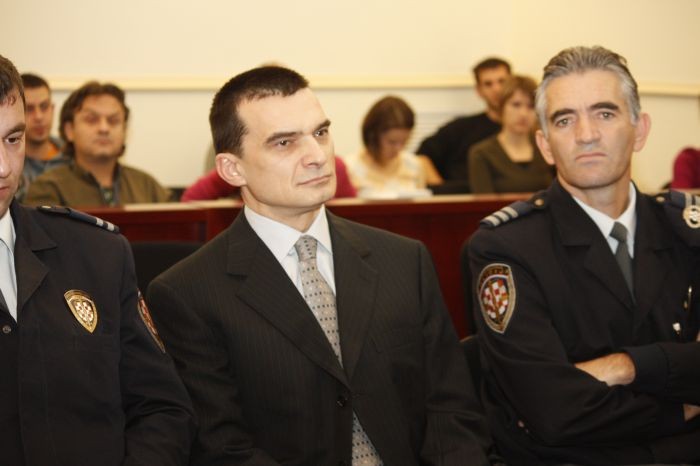
Since the Croatian president Stjepan Mesic lived near the location where the event occurred, Pukanić ran to his security and informed them about the attack. In the meantime, Pukanić`s daughter who heard the shots called the police. The patrol soon arrived at the crime scene and during the crime scene investigation three bullet casings were found, two of Pukanić and one of the assailants, which confirmed Pukanić’s version of the event. The gun from which the assailant shot was found in a plastic bag near the scene of the attack, in neighbouring Krajiska Street. Pukanić later described to the police the assassin as a man 195 centimetres high, with a short beard and a black woollen cap on his head, who smiled while saying that he would kill him. The controversial journalist later made public the fact that only a few days before the assassination attempt, he was also the victim of threats and extortion attempts by an unknown person. Some have connected the attack in connection with the information that Pukanić would sell the majority of shares of the weekly, and some Croatian media speculated that Pukanić faked the assassination attempt to divert public attention from his wife being taken to a psychiatric hospital under duress, which happened just a week earlier. Pukanić and his family were assigned police protection, which was withdrawn in early August, after the police estimated that he was no longer in danger.
Two Investigations and Two Separate Trials
Thanks to fast operational work of the Croatian Bureau for Combating Corruption and Organized Crime (Cro. Ured za suzbijanje korupcije i organizovanog kriminaliteta - USKOK) and, as it was publicly claimed, police cooperation of former Yugoslav republics, the suspects of Pukanić’s liquidation were arrested after only ten days. Near the Croatian-Serbian border, near the INA gas station, next to the motel Spačva, the brothers Robert and Luka Matanic were arrested, as well as Slobodan Đurović and Milenko Kuzmanović, while Amir Mafalani was arrested in Zagreb. The police then said that Đurović wanted to transport Matanic brothers to Serbia. After a few months, on April 27th, 2009, Sreten Jocić aka Joca Amsterdam, was arrested in Belgrade on suspicion of having ordered and organized Pukanić's murder. Jocić was arrested in the elite part of Belgrade called ‘Dedinje’, in a villa that he rented from Mirjana Marković, wife of the late Yugoslav president Slobodan Milosević. Jocić's arrest was carried out by order of the Special Prosecutor's Office for Organized Crime of the Republic of Serbia, which used the legal possibility that enabled the local judicial system to take action against its citizens for the crimes committed abroad.
Citing the sources from the Ministry of Interior Affairs, certain media in Serbia published that, before going to Croatia Đurović met with Jocić in Belgrade and that he, following his orders, went to pick up Matanić brothers. That meeting was allegedly preceded by the telephone conversation which was used as a vital clue that led the police to Đurović. Despite the existence of several possible directions of investigation, Croatian USKOK started from the assumption that Pukanić was killed for his writings on "tobacco affair". The investigators found out that the assassins were Bojan Gudurić and Željk Milovanović. Milovanović was arrested in late May 2009, in a rented apartment Belgrade and was found with a larger quantity of weapons, silencers, equipment for electronic surveillance and communication, as well as several mobile phones and SIM cards. Kuzmanović was arrested by the Croatian police, but due to the lack of evidence, he was released in December 2008, but after the statements of penitent witnesses was again arrested, this time in Belgrade in May 2009. Bojan Gudurić surrendered to police in Banja Luka a few days before the beginning of trial in Zagreb.
Apart from Zagreb, the trial for Pukanić's murder was also taking place before the Special Court in Belgrade. The court in Croatia tried the brothers Robert and Luka Matanic, Bojan Guduric, Slobodan Đurović, Amir Mafalani and, in the absence, Željk Milovanović who was tried for the same offense were in Serbia. In Belgrade, Sreten Jocić, Milenko Kuzmanović and Željk Milovanović were tried in court. According to the statements of the investigative organs, the court documents, at the end of the process, amounted to about 10,000 pages in Croatia and 8,000 in Serbia. Croatian prosecutor, Slobodan Šašić, and Serbian, Jovica Jovanović, raised very similar indictments that were based on the same material evidence such as telephone communications, biological traces, surveillance camera recordings and testimony of the same witnesses. With the only difference being that the Serbian prosecutor, apparently driven by political rather than legal reasons, although without having direct evidence, added to the indictment Sreten Jocić as the person ordering and organizing the assassination.
In Zagreb, the trial of this case lasted for nine months, where the local media named it the trial of the decade. As one of the witnesses, the Prosecutor’s Office summoned the controversial Montenegrin businessman Ratko Knežević, who was considered to be a close friend of the late Pukanić. Knežević, known as a very controversial and not credible person who liked publicity and media, in the court, referred to evidence that he previously told to the reporters, who published them without any checking the credibility of what Knežević told them. On this occasion, the "witness" said that the informed the Croatian intelligence about his suspicions that Pukanić was killed by the so-called "tobacco mafia". Knežević told the court that in Bari 2001, he and Pukanić testified before the Italian prosecutor about smuggling of cigarettes from Montenegro to Italy and have since received serious threats. "Vecernji List" wrote that Knežević delivered five hours of testimony on the mechanism of cigarette smuggling through Montenegro and how the network of organized crime on the territory of the former Yugoslav republics was created. Without concrete evidence and direct knowledge, Montenegro was described as a mafia-Udba country saying that he left the country "when next to cigarettes, they started to smuggle drugs and people."In line with what he kept saying for years to media, he described Stanko Subotić Cane and Sreten Jocić as the most dangerous people in the Balkans. He claimed that he was threatened by Subotić after the testimony in Italy, saying that he had already killed many and will kill him and Pukanić. Knežević told the court that "the intelligence of Croatia and Slovenia on several occasions prevented the assassins paid by Montenegrin secret police to kill them." The Court, however, rejected his entire testimony as non-credible, unconvincing and unsubstantiated with valid evidence.
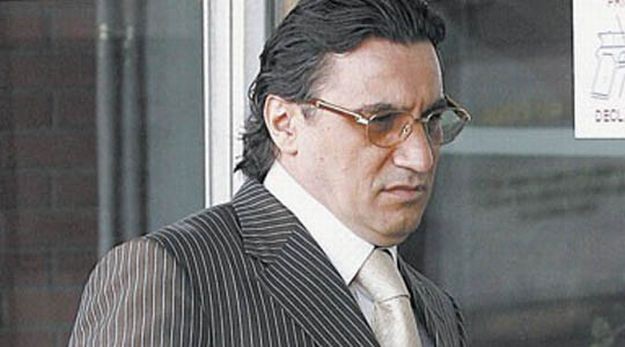
The protected prosecution witness was Tomislav Marjanović who belongs to the criminal environment. He said that Milovanović obtained the explosive in Cazin and that the assassins arranged to set the explosive either in the car or the motorcycle, while Bojan Gudurić was to sit with a sniper on the roof of the building opposite of “Nacional”. The witness took part in the monitoring of Pukanić as a driver of Robert Matanić. In court, Marjanovic stated his indirect knowledge that the Pukanić murder was allegedly paid by Sreten Jocić, aka Joca Amsterdam, and that Jocić's best man, Slobodan Đurović, participated in the preparation of liquidation. The witness said that the liquidation was planned in the apartment of Robert Matanic in Gomboševa Street 10 in Zagreb, where Milovanović and Gudurić were accommodated. These meetings were attended by Luka Matanić, Amir Mafalani and Marjanovic. The deal was that Mafalani would monitor when Pukanić would go to and out of the newsroom. He was supposed to find out from which direction he would come and go to work or home, and what would be the easiest way to get him. Later they divided themselves into two groups. In the first group were Mafalani, Luka Matanić and Gudurić, and in the second were Robert Matanić, Milovanović and Marjanović. Each group had the task to monitor the movement of Pukanić. The second group was tasked to determine the place for the murder to be committed. Two days before the liquidation, Milovanović brought into the apartment a box with a remote control for which he claimed to be an explosive device, stated the witness. In his testimony, he explained that he was in contact with Robert Matanić via mobile phone and in such a way he also contacted both Đurović and Milovanović. Marjanović testified that Robert Matanić told him that the liquidation of Pukanić was ordered because of his testimony in Montenegro (although Pukanić never testified in Montenegro) and that he said something that he wasn’t supposed to which would cost him life. The witness stated that Žarko Pavlović, a friend of Slobodan Đurović, and Dražen Golemović, connected him with Željko Milovanoviće.
The key part of Marjanović’s testimony was related to the role of Sretena Jocić in organization and ordering of the assassination. On this occasion he said that he, allegedly, was present during a telephone conversation between Sretena Jocić and his best man Slobodan Đurović. ""I was present when Đurović, in Zagreb, after a telephone conversation, said that he had just talked with Jocić and that Jocić said he would give a million and a half euros and a bonus if we would do it on time", Marjanović said in his testimony. This was the part of the statement in which, according to the judgment of the court, indirect knowledge was expressed and not substantiated. Findings on the expertise of base stations of mobile telephony in Croatia, it was established that there was no telephone conversation between Sretena Jocić and his best man Slobodana Đurović while he was in Zagreb, which was a statement that represented the foundation of Marjanović’s testimony against Jocić.
According to the indictment, Robert Matanić was responsible for the organization of the entire operation, so he organized that Pukanić is being followed and found apartments for Željko Milovanović and Bojan Gudurić; he was also in contact with Slobodan Đurović. In his testimony, he accused Milovanović and Gudurić, he mentioned Đurović and Vladimir Zagorec and Stanko Subotić, but subsequently, he withdrew that part of the statement, claiming that he spoke as ordered by USKOK. He spent a lot of time in his testimony talking about his connections with the secret services, and bragged about his love of weapons dating back to his twelfth year. In Bulgaria, he was a suspect in a series of murders, but his guilt wasn’t proved. From the prison in Zagreb, he threatened a protected witness, and during the trial in the courtroom he had leg cuffs. He was sentence to 33 years in prison.
Luka Matanić was sentenced to 26 years in prison and according to the indictment, he followed Pukanić, drove the motorcycle to Milovanović on the day of the murder and drove Milovanović and Gudurić out of town after the liquidation. Matanić denied the offense, saying that he didn’t follow Pukanić at that time he had to be at work, as testified by his boss, who described him as a quiet and hardworking guy. Prior to the trial, he was serving a sentence for drugs and weapons. He tried to discredit contacts with Milovanović and Gudurić, although he did not deny that he drove them out of town. According to the statements of a witness, Luka Matanić was seen in the courtyard of "Nacional", a few days before the assassination of Pukanić, but he denied it, saying that the witness didn’t see it well. He was with Robert Matanić when, on 29th October 2008, he was arrested on Spačva.
According to the indictment, Amir Mafalani was involved in the surveillance of Pukanić, purchased the equipment for surveillance and photographed the victim. He was accused by the protected witness Tomislav Marjanović. Marjanović's testimony was supported by the testimony of a police officer, Nenad Šipušić, who confirmed that, a few days before the murder, Mafalani told him that there was probably a murder being prepared in the city. Mafalani was an informant of the police inspector Šipušić, but this police officer did not report this information to his superiors; he later received a misconduct penalty for this. The witness who claimed that he saw Luka Matanić in the courtyard of "Nacional", also confirmed that he was accompanied by Mafalani. During the search, various texts were found in his computer on mafia liquidations, including Ivana Hodak, but not the photos of Pukanić. He accused Robert Matanić, saying that he heard him say that a murder was being prepared in the city. Mafalani was sentenced by the court to 28 years in prison.
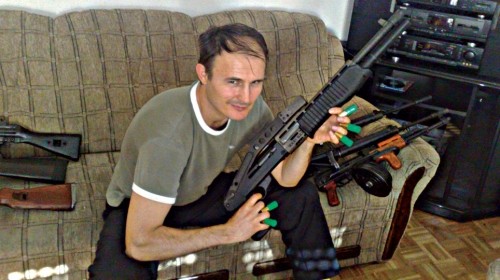
Željko Milovanović was validly sentenced by the court in Zagreb to 40 years in prison, on the same grounds that lead him to the identical sentence of imprisonment in Serbia. Milovanović activated an explosive device by a remote controller, probably from a rented apartment opposite of the weekly "Nacional". Milovanović was also known to public as a member of the notorious "Red Berets", and was also tried in absentia for crimes committed in Baranja. He was convicted on several occasions for bank robberies and his nicknames were Gavro, North Wind and Flyer. For the participation in the assassination charged by the approver, Tomislav Marjanović and the accused Robert Matanić. His DNA traces were found at the site of the explosion, and according to some media, he was shot by the security cameras when he took off his helmet from his head.
Bojan Gudurić Bajone, according to the indictment, was responsible for the backup version of the murder with a sniper rifle. His DNA was found on the sniper, and he said that his DNA was found on the weapon of by chance and that he was completely ignorant of weapon use. He even claimed that he could not have been the sniper, because he was visually impaired. Under a false name, Kaiser Franz, he was living in a rented apartment on Petrinjska Street, and before that he lived with Robert Matanić. His biological traces were found in this apartment, and he justified his arrival to Croatia by the fact that his family still lived there, while in Serbia an arrest warrant was in effect for not responding to serve his sentence his sentence. Bajone was sentenced to 29 years in prison.
Slobodan Đurović, called Cardinal, was tried in Croatia for the murder of Pukanić and sentenced to 56 years in prison. He is also the best man of Sreten Jocić, and in the Serbian indictment, he is mentioned as a link between Jocić and other convicts. Đurović presented himself to the court as a businessman who has more than 10 million euros. He said that, as such, he socialized with lawyers, judges, and doctors and did not quite convincingly explain why he spent his time in Croatia with the people of criminal background such as Robert Matanić and Tomislav Marjanović. He claimed that he met with Matanić in Spačva so that Matanić would return him a debt of 15,000 euros, and that is because of that meeting, he left the job of one million euros. According to the information of Interpol Belgrade, Đurović is the right-hand man of Sreten Jocić and is responsible for his dirtiest jobs. In his defense, Đurović argued that no one, not even Jocić could order him what to do and that he never had anything to do with crime. He justified more than 750,000 euros, which he got into his account a few days before the assassination of Pukanić, by saying that it was what he earned for a job carried out by his company.
During the trial, the defence denied a report of the telecommunications expertise and contacts between the accused because, as the lawyers argued, it did not prove that the defendants actually kept following Pukanić. According to the defence, the fact that Gudurić's DNA was found on the sniper could have been interpreted as an accident, because the protected witness Tomislav Marjanović was not to be trusted, as well as some other witnesses such as Ratko Knežević, whose unfounded statements seriously compromised the indictment. That is why the defence attorneys requested acquittal, underscoring that their clients were exposed to media lynch and conspiracy of political-intelligence and police milieu.
The Trial Chamber in Zagreb took the view that the Prosecutor’s Office did not prove the existence of a criminal organization, but only of a criminal group. The group is a lower level of criminal association. The formation, structure, hierarchy, repetition of offenses and connections with state structures is a difficult thing to prove in case of a criminal organization and Croatian USKOK did not offer sufficient evidence for that. The Court accepted expert evidence of telephone communications between the accused, forensic traces from the crime scene and from the apartments where the accused were hiding, as well as the recordings from security cameras. The testimony of Tomislav Marjanović was partially accepted, but the court emphasized that he was not the most reliable witness, since he originated from the criminal milieu. The court also was not too impressed either with the testimony of Ratko Knežević, who spoke for hours about the so-called "tobacco mafia", for which he claimed to be responsible for the death of Ivo Pukanić. However, the fact that Marjanović's testimony was taken seriously in certain circles and that he, as a witness, was exposed to a certain type of pressure and warnings by unknown perpetrators, is confirmed by the fact that his apartment was broken into with the entire furniture being stolen.

The court in Zagreb published transcripts and SMS conversations between Ivo Pukanić and Croatian State Prosecutor Mladen Bajić, what was reported by "Večernji list". From this communication, it can be seen that the two were in close relationships, although Pukanić was the one who insisted more on the friendship. In these messages, the owner of "Nacional" asked for the investigation to be conducted regarding the charges that he fraudulently hospitalized his wife, since those accusations harmed the business activities of his company. Pukanić also said he had information related to the robbery of the Post Office in Split. He informed the Prosecutor that the protection that had been allocated to him by the state after an attempted assassination, was cancelled on 1st August 2008, which as justified by saying that the police estimated he was no longer in danger. The message that was particularly interesting was the one in which Pukanić, on 20th August 2008, informed Bajić that had information related to the "case Hodak" and asked him for a meeting; Bajić responded with - immediately". It is not known whether the meeting ever took place and if so, what kind of information Pukanić submitted to the prosecutor. In the last messages, it can be seen that Pukanić wanted to go to the USA and that he asked for help from Bajić regarding the obtaining of visa; the Public Prosecutor was extremely reserved about this. From Pukanić’s messages to Bajić, it can be understood that the murdered editor might have received the data referred to several different offenses. Pukanić apparently felt threatened in Croatia and wanted to move afield. The state called off his protection without previously giving away who tried to assassinate him. Cognoscenti of the situation in Croatia have repeatedly questioned whether the cause of this was the ineffectiveness of the competent state authorities, or a possible indication that some individuals from state structures were involved in the murder, or a combination of both of these factors? However, the indicative thing was that, in the communication between Pukanić and the state prosecutor, various on-going criminal cases were mentioned, of which the late the owner of "Nacional" had some information, but not the "tobacco mafia", for which the investigation and media mainly argued that was allegedly behind his assassination.
Both trials for the murder of Pukanić and Franjić were accompanied by numerous controversies. The former head of Croatian USKOK, Željko Žganjer, appeared as a lawyer of Slobodan Đurović, which also could have represented a certain problem because it is probable that, through his channels, Žganjer could have obtained information about the investigation against the group that was suspected of and later charged with murder of Pukanić. Inspector Šipušić from Zagreb police did not report the tip of his informant Amir Mafalani that the murder in Zagreb was probably being prepared. This again pointed to the incompetence and inefficiency of the Croatian security system and the possibility of its partial criminalization. Despite the fact that both Prosecutor’s Offices, Serbian and Croatian, publicly claimed to be mutually coordinating the indictments, Željko Milovanović was charged and later convicted for the same offense by the courts in both countries. Also, the fact that Sreten Jocić was left out of the indictment of Zagreb, did not go in favour of the statements about their mutual coordination. Given that the prosecutors in Serbia and Croatia mainly relied on the same evidence, it was not clear how it was possible for Jocić to be tried as an indictee in Belgrade, while his name was not mentioned among the accused in the Croatian indictment? Were different evidence used in the indictments or did the Prosecutor’s Offices apply different criteria to evaluate the same evidence; or whether the issue was a political decision of the Belgrade authorities to, by using Jocić in the process, achieve certain political objectives – all these remain to date the questions without any answer from the competent authorities. After the final evaluation of the court, Croatian USKOK and the Prosecutor’s Office offered in court only indirect evidence on a criminal organization and involvement and motives of the so-called "tobacco mafia", in the murder of Franjić and Pukanić. The Croatian indictment stated that Pukanić was murdered in order to "make it impossible for the print and electronic media in Croatia and neighbouring countries, to publish journalistic findings on the functioning of several criminal groups in those countries and on their mutual correlation". The court in Zagreb showed a greater degree of professionalism than that of investigating authorities, and based its judgment only on certain material evidence linking the suspects to the location and means of the offense and in part on the testimony of individual participants in this double murder. The Court underscored that the exact motive and the person or persons ordering the crime were not confirmed and that the answer to this question was known only to Slobodan Đurović. The trial in Croatia lasted from 2nd February to 27th October, 2010, and the Croatian Supreme Court issued a final verdict in February 2013.
According to the indictment of the Serbian Organized Crime Prosecution, Jocić was charged with receiving € 1.5 million, from an unidentified person for the murder of Ivo Pukanić. According to these allegations, after that Jocić organized a group for the execution of this crime. As alleged in the indictment, Joca Amsterdam, left the organization murder to his best man Slobodan Đurović alias Cardinal, who was sentenced to 22 years in prison in Croatia. Belgrade daily "Blic" reported that, according to the Serbian indictment, the motive of Pukanić’s murder was the fact that by means of the media in Croatia and Serbia, he published the information about the activity of several criminal groups in Serbia and the neighbouring countries. According to these allegations, running costs for the organization of murders amounted to 22,000 euros, while the rest of the money was to be paid upon liquidation. For the prosecutors, the evidence for these allegations was the fact that 15,000 euros were found in the apartment of Robert Matanić's girlfriend, and he left that money before he went to Spačva, where he was arrested together with Luka Matanić Slobodan Đurović and Milenko Kuzmanović at the end of 2008. During the search of the apartment of Željko Milovanović in Doboj, 20,000 euros were also found, and another 3,500 euros were found in an apartment in Belgrade, where he was arrested. Since none of those arrested did not have a steady source of income, for the Prosecutor’s Office, it was a proof that the money was illegal
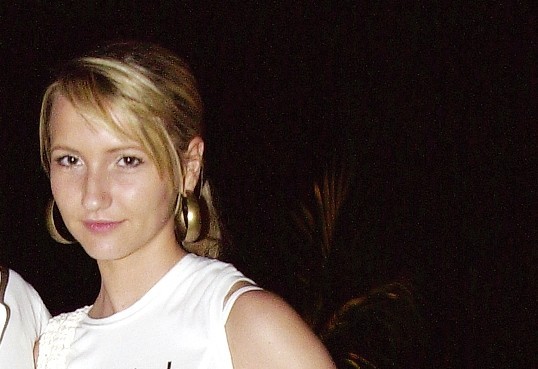
The link which allegedly connected Jocić with Pukanić’s murder, according to the Prosecution, was Đurović's account in a Montenegrin bank where in the beginning of October 2008, 780 760 euros were paid into, and from that account, on 3rd October, he picked up 50,000 euros. For a direct perpetrator of murder was accused Milovanović, who was charged with driving the scooter with the explosive device into the yard of "Nacional". The departure from the yard was recorded by video surveillance cameras, and his DNA was found in the apartment where he was hiding and in the apartment of Robert Matanić in Zagreb. Kuzmanović's DNA was also found in the same apartment. All these were evidence due to which which the Serbian Prosecutor’s Office requested convictions for Jocić and the participants in the assassination. After the presentation of evidence and statements of witnesses, the court deemed that none of these accusations against Sreten Jocić were proved. During the trial, together with Milovanović, Jocić ended up in strict isolation, because it was suspected that he organized the escape attempt Milovanović and Sretko Kalinić from prison, which occurred in February 2012. The media speculated that at the same time, Jocić ordered the liquidation of Tomislav Karamarko, former Croatian minister of police and the then head of the HDZ (Croatian Democratic Union) party; his name was mentioned in the context of alleged ordering of the liquidation of some Serbian politicians and judges, including former Serbian President Boris Tadić, what in a well-organized media campaign, became part of a kind of political marketing.
Apparently being aware of the lack of evidence in the indictment, Sreten Jocić has appeared confident during the trial, often entering into discussion with witnesses, but with the judge as well. He claimed that his criminal trial was a set-up by the individual fractions of Croatian, Albanian and Serbian intelligence services associated with politics and mafia, rejecting any connection to the murder of Pukanić. He said that since 2006, when he got out of prison, he did not deal with crime, but that he registered a company and became involved in legal business, becoming so successful in business that his success started bothering tycoons and their protectors in the government. He called out the Croatian Minister Tomislav Karamarko and the former President Stjepan Mesić for the murder of Pukanić. He said that he cooperated with at least six strong world secret services. In court, he also stated that he was charged with the murder of Pukanić because he refused to be a cooperating witness of the Prosecutor’s Office, which required him to falsely accuse Milo Đukanović, Stanko Subotić and Brano Mićunović for the crime. He said that they did not know Đukanović and Subotić, while he stated that he met Mićunović in 1991, but did not see him more than two times in his lifetime.
The trial in Belgrade started on 20th April 2010, the first instance verdict was issued 2nd April, 2014, while on 2nd March, 2015, the Court of Appeals issued a final verdict that, due to the lack of evidence, acquitted Jocić of all charges in this case. Milovanović was sentenced to 40 years in prison, and for Kuzmanović, a penalty of five years in prison was originally determined, which he had already served during the process, but the Court of Appeal in his case issued a decision ordering a new trial. In addition to aggravated murder, Milovanović was tried for illegal possession of arms and falsification of documents, where for illegal possession of arms, he got five, and for forging, three years in prison; consequently, he was imposed a uniform maximum penalty of 40 years, and he got the same sentence in the court in Zagreb. In Croatia, charges were dropped against Kuzmanović for helping the offender, but in Belgrade, he was convicted as an accessory. The Trial Chamber concluded that there was no evidence that Jocić was associated with the perpetrators of the murder. Although he won an acquittal, Joca Amsterdam was not released because has been serving a prison sentence of 15 years for a murder from the nineties.
Serbian investigative authorities failed to prove the origin of the payment of 780,760 euros, which was paid into Slobodan Đurović's account Montenegrin Commercial Bank on 2nd October, 2008, as it was stated in the indictment that the payment was a part of the prize for the assassins. Based on the statement of the Supreme State Prosecutor's Office of Montenegro, that amount was paid in by a foreign sender whose identity was unidentifiable. The presiding judge Vladimir Vučinić said that Slobodan Đurović, Jocić's best man, agreed with a stranger to conduct Pukanić's liquidation for 1.5 million euros, but in the testimony, Đurović refused to blame Jocić arguing that in this case Đurović was innocent, too.
Although Belgrade press largely wrote, citing unnamed police sources, there were intelligence data that the murder of Pukanić was ordered from Montenegro, the investigation failed to provide such evidence. The media initially published that an intercepted telephone conversation between Slobodan Đurović and Sreten Jocić was the reason for the arrest of Đurović, but during the court proceedings, the prosecutor did not present such evidence in court, so it can be assumed that the recording of that conversation did not exist or, if it did, it was not a taken under the provisions of the criminal procedure law, and therefore its use as evidence was not possible. These media statements, however, were only a small part of a wide-organized campaign, with serious indications that it was politically motivated and instructed.
Orchestrated Media Campaign
In parallel with the investigation and trial for the murder of Ivo Pukanić, starting from the day of the assassination until the pronouncement of acquittal of Sreten Jocić, who was charged before the court of Belgrade as an organizer and the principal of the liquidation of Croatian journalists, an intensive media campaign was led in several basic directions in the Serbian, Montenegrin, and partly Croatian media. On the one hand, in apparent collusion with the Prosecutor's Office and the criminal police, Serbian media sought to by means of "exclusive" sensational information, support in public the doubts set forth in the indictment which, as it turned out, were not supported by serious direct evidence. On the other hand, by potentiating the unsubstantiated assumption that so-called "tobacco mafia" stood behind Pukanić's murder, the media, obviously according to political instructions, often lightly and groundlessly published malicious accusations against Milo Đukanović, the Prime Minister of Montenegro, and Stanko Subotić, a Swiss businessman of Serbian origin, that Pukanić once in texts accused as the main organizers of cigarette smuggling in the Balkans.
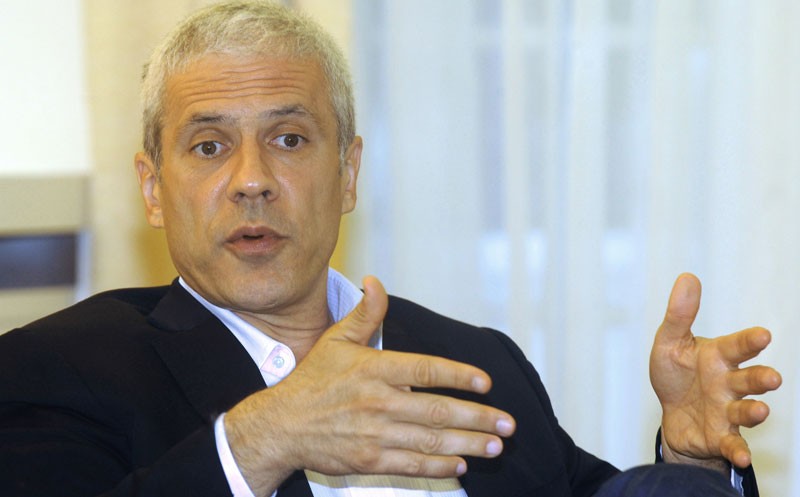
By means of a detailed insight into the writings of the media about the case of Ivo Pukanić's murder, it can be determined as indicative that what was found in hundreds, and perhaps more than a thousand, of texts in the print media, was a little of what the Prosecutor’s Office unsuccessfully tried to prove in court. The major part of the speculations that media dealt with, was led by sensational impulses, has been proven either as inaccurate or as assumptions for which the Prosecution failed to find valid evidence.
One can draw clear conclusions about the direction and trends of media reporting, by an examination of even just one part of the indicative headlines and short summaries of articles in the print media that kept track of Pukanić's murder case.
Just a day after the assassination in Zagreb, at a time when even the investigation in Croatia had no clear indications of the reason for Pukanić's murder, Belgrade "Politika" published two articles in which the crime was connected to Montenegro and "tobacco mafia". In the texts "Nacional shook Montenegro" and "On the Serbian conjunction of politics and crime", the newspaper under the direct control of the former government in Serbia, paved the way of the investigations to be accepted by the Serbian Prosecutor’s Office. In these texts, "Politika" stated the idea that behind Pukanić's murder were the same reasons that, several years ago, led to killing of Duško Jovanović, the editor in chief of Podgorica-based opposition newspaper "Dan". As the Montenegrin opposition and the largest number of Serbian media openly accused the Montenegrin authorities for the murder, it was clear who, according to "Politika", the main suspect in the assassination of Pukanić was. The fact that already more than seven years passed since the launch of the "tobacco affair" and that it was already covered with a veil of forgetfulness, did not bother Belgrade's pro-government newspaper to, while re-excavating of the affair, set a clear political prefix on this criminal case. [4]
It is interesting that only 15 days earlier, "Politika" published an article "Zagreb 'Fog' follows Joca Amsterdam", in which Sreten Jocić was brought in connection with the case of General Vladimir Zagorec, in which Ivo Pukanić was also involved. What is indicative, however, is the situation that, despite the conclusions in its earlier research text, immediately after the murder of Pukanić, "Politika" suddenly "discovered" the Jocić connection with the "tobacco mafia", though the investigation was not able to prove it. [5]
Four days after the assassination of Pukanić, on 29th October, in the text with the headline of "Cane Subotić also under Suspicion", Belgrade "Kurir" conveyed the writing of Zagreb’s "Nacional", which, citing the sources close to the investigation, published that the investigation was moving in three directions, according to Stanko Subotić Cane, the arrested retired General Vladimir Zagorec and the suppliers of cocaine for Pukanić's wife Mirjana Pukanić. [6]
No later than 30th October, did "Večernje novosti" "discover" that "the Principal was from Montenegro" [7], and the next day, the tabloid "Press" published the article "Italy: Pukanić testified against Milo" [8], while on 1st November "Glas javnosti" repeated the same claim in the text "Milo’s smuggling goes to the archives". [9]
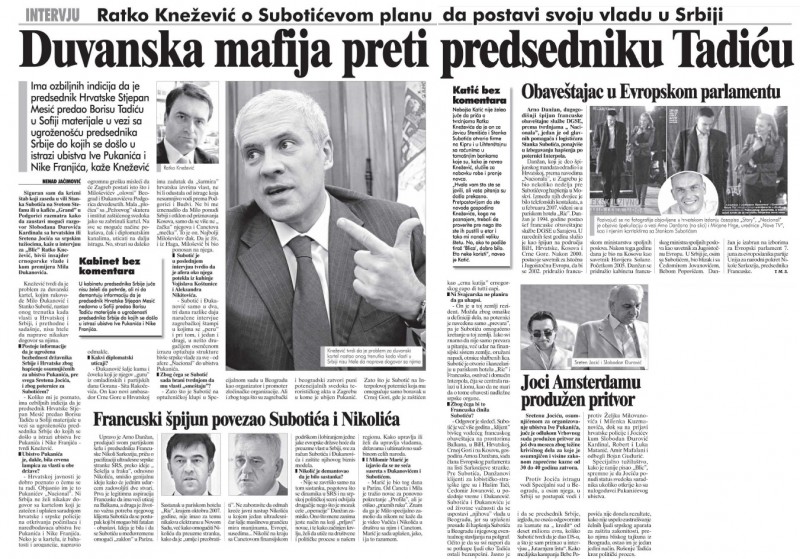
With the release of 31st November, in the text "Joca’s tentacles in Zagreb", "Politika" continued with the speculations about the role of Sreten Jocić in "Pukanić case" [10], while on the same day "Blic" published an article with the headline "Jocić organized the escape of Pukanić’s killers", in which the author Tamara Marković Subota presented numerous operational findings of the police regarding the connections between individual persons from Croatian and Serbian underground. [11]
In early November, the tabloid "Press" again came out with information that "Pukanić was killed by Montenegrins", [12] presenting the claim that behind the murder of Pukanić stood the "tobacco mafia"; apparently, Sreten Jocić was closely related to it. Citing the sources from the investigation, "Press" stated that the suspects in Pukanić's murder “were helped in different ways by the ruling party in Montenegro", and in the same article the statement of the Minister of Interior Affairs, Ivica Dačić, was also published. Dačić admitted that "there was no indication that Sreten Jocić was in any way connected with the murder of Pukanić." Although Dačić did not want to comment in more detail "the finding" that the Montenegrin mafia was involved in the murder of Croatian journalist, he expressed the expectation that "Montenegro would become a little more involved in the resolution of this case."
In the article "Đurović issued the order in Zagreb", dated 24th December, citing the sources from the Croatian investigation, Belgrade "Politika" presented two contradictory claims. The article by R. Arsenic first disclosed the knowledge that the murder of Pukanić in close connection with the murder of Ivana Hodak, which occurred on October 3 of that year, and in the second part of the text was put to you that there are more and more indications that stands behind the murder "tobacco Mafia "although between Hodak murder cases and cigarette smuggling there was absolutely no connection. [13]
Meanwhile, Croatian "Nacional" continued the relentless campaign of putting pressure on the Croatian investigative authorities to direct the investigation on the persons ordering the crime towards Stanko Subotić and Milo Đukanović. During this campaign, "Nacional” got so carried away that at one time it published false information that the Serbian Foreign Minister Vuk Jeremić allegedly accused the Montenegrin Prime Minister Milo Đukanović of standing behind Pukanić's murder, which Jeremić himself had to vigorously deny. [14]
Whether the Zagreb weekly did that to conceal the connection between his former owner with the clashes in the Croatian underground, or this was done for the purpose of political discrediting and destruction of the Montenegrin government, it is not known, but several years later, after many lost court cases, the management the newspaper acknowledged that the campaign against Subotić of that weekly was guided by the decision of Pukanić and his editorial team.
After a few months of a relative standstill, on 21st of April 200, the newspaper "Press" announced that Sreten Jocić was going to be accused of ordering the murder of Pukanić. Referring to the writings of "Nacional" from Zagreb, in the article "Joca Amsterdam ordered the murder of Ivo Pukanić?!" Belgrade tabloid stated the fact that the police allegedly had a secret witness who accused Sreten Jocić of ordering the murder of journalist Ivo Pukanić! [15] Two days later, on April 23rd, citing the writings of "Jutarnji List" from Zagreb, Belgrade daily "Press" and "Politika" repeated the accusations against Jocić, stating that he would be charged as a principal, or the organizer of the murder, by the Croatian judiciary. Despite the sensational discoveries of the tabloids in Serbia and Croatia, Jocić was never charged with the crime in Zagreb, but the writings of the media allowed Serbian Prosecutor's Office to prosecute him in Belgrade, although, as it turned out, there was no valid evidence for doing so. [16]
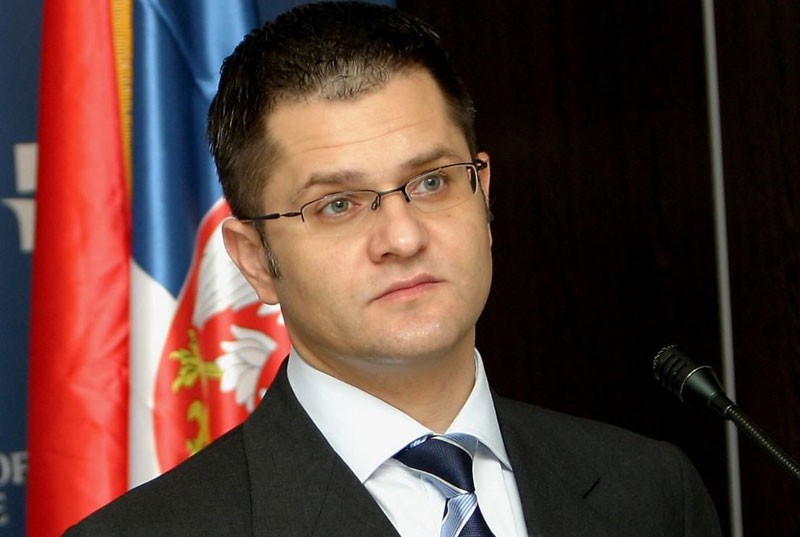
In response to the increasingly frequent accusations from Belgrade, which by then had already been merged with the anti-Montenegrin hysteria in the Serbian media developed after the recognition of Kosovo's independence by the official Podgorica, the Prime Minister Milo Đukanović said in an interview for Zagreb's "Večernji list" that Ivo Pukanić was a media racketeer. "Pukanić presented the texts from Nacional to the Prosecutor’s Office in Bari. He fostered such a form of journalism, which could be called media racket. Such texts were necessarily accompanied by an offer to stop all of it, under certain conditions, "explained the Đukanović, adding that the offers would come indirectly, but he ignored them all. He pointed out that the whole story of his involvement in smuggling was launched from Belgrade, in the interest of the policy of the former Belgrade regime. [17]
As the investigation in Belgrade announced through its media channels, Sreten Jocić was arrested on 28th April, on the suspicion of having ordered and organized the murder of Pukanić. Although the media speculated that the arrest occurred on the basis of data obtained from Croatia, the fact that he was never charged in Zagreb, supports the thesis that his arrest and subsequent bringing charges against him, occurred exclusively on the initiative of the Serbian Prosecutor's Office. The local media spiced up the news of Jocić’s arrest, by the speculations about his alleged plan to escape to Austria, what was supposed to make the readers get the impression of his unquestionable guilt, which was also proved by Jocić's unwillingness to confront the charges in court. [18]
Already on April 29th, "Politika" from Belgrade published the article "Cane charged by the protected witness as well"in which, referring to the writings of "Jutarnji List", it was stated that the cooperating witness of Croatian police pointed out that the actual person ordering the murder of the owner of "Nacional", was allegedly Stanko Subotić Cane; Ivo Pukanić once wrote of him as the main Balkan mafia boss for cigarette smuggling. "According to the testimony of the witness, that was precisely the motive of the crime, especially the testimony of Pukanić in Italy regarding Balkan 'tobacco mafia', which he, via Cane, brought in connection with the Montenegrin national leadership headed by Milo Đukanović"- it was stated in the “Politika” on 29th April 2009. [19] On the same day, the tabloid "Press" also referring to the writings of the Croatian media, published an article entitled "After the fall of Joca, Cane is falling too?" [20]
The insinuations that behind the murder of controversial Croatian journalists were Subotić and Đukanović, were joined by the weekly NIN with the text "Tobacco, deceased and repentant" by Nikola Vrzić (the advocate of the theory of the "Third bullet"), which pointed to the Prime Minister of Montenegro and indicated the target of the words of Serbian Police Director Milorad Veljović, who declared a few days earlier, that the arrest of Jocić did not fully solve the case of Pukanić’s murder. "We, as the police of Serbia will certainly help the colleagues from Croatia till the very end, to shed the light on the case. I think it has a broader aspect than of what it is currently thought, but due to some facts that might impede the investigation, at the moment I cannot give specific details", said the then Director of the Serbian police. What he meant exactly, will become clear only later, with Jocić stating in court that he had just been offered by Veljović, via his delegates, the status of cooperating witness status if he would name Subotić and Đukanović as principals of the murder! [21]
The following day, 30th April, texts with new details of the investigation were released by "Blic" and ”Večernje novosti". Citing their sources from the Ministry of Interior Affairs, the two daily newspapers were again trying present information to domestic public that the accusations against Jocić came from the Croatia where, as it turned out, his name was not mentioned neither in the criminal charges nor in the indictment. [22]
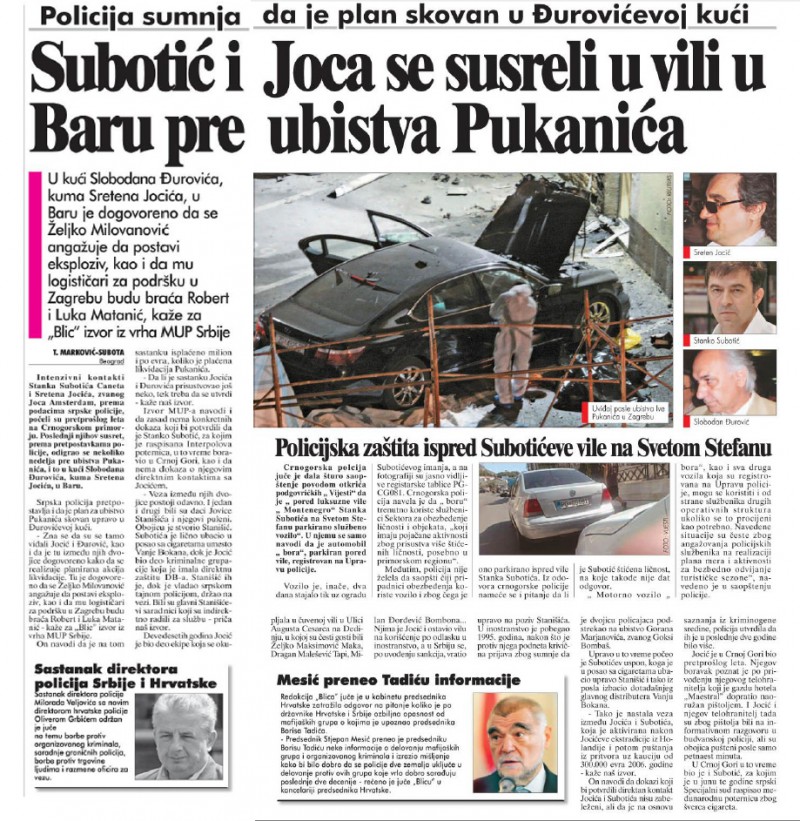
While the Serbian police and the Prosecutor's Office filled the columns of the local and regional press with "inside information", the trial against Sreten Jocić in early May, was declared an official secret. A month later the State Secretary in the Ministry of Justice, Slobodan Homen, announced that Željko Milovanović, suspected of the murder of the owner of the Croatian weekly "Nacional", would be tried in Serbia if he would be found to have Serbian citizenship. [23]
In late June, a part of Belgrade media raised the issue of the possibility that Jocić would get the cooperating witness status, if he would name the "top of the criminal pyramid". In the article "Joca will not be a protected witness!”, on 30th June 2009, the tabloid "Press", addressed the topic by invoking the statements Jocić’s lawyer Zdenko Tomanović who said that the court would have to have strong evidence that his client was guilty of murder of Pukanić, in order to offer him this status." Since they don’t have it, such an arrangement would not make sense," said Jocić's defense attorney. In the following text, however, it was clearly stated Jocić would have to do in order to obtain such a status. Referring to the allegations of "certain media", "Press" stated at the time that Jocić would be offered the status of a protected witness, but on condition that he would reveal the names of the actors of unsolved murders that were in the last fifteen years committed in Serbia, Croatia, Bulgaria and the Netherlands. "The first condition that he will be set, according to these sources, will be to expose the top of the criminal organization that ordered the murder of Pukanić. The first suspect in this murder is Jocić himself, but Croatian investigators insist that there are serious indications that his superiors ordered and ordered this crime. The case of Sreten Jocić is, by all accounts, particularly interesting to Croatian judicial system, because they are determined to shed light on the murder of Pukanić all the way through," stated "Press", again ignoring the case of Jocić was solely related to the investigation and trial in Serbia, but not in Croatia. [24]
On 1st July, in a kind of a public offer addressed to Jocić, "Blic" published the article "The Name of Badza’s Killer is Expected from Sreten Jocić", in which it was stated that the prime suspect in a murder investigation of Ivo Pukanić, would have to reveal the names of murderers of general Radovan Stojičić Badža, inspector Dragan Radišić, Pavle Bulatović i Branko Bulatović. [25] Only twenty days later, the tabloid "Press" conveyed the words of Ratko Knežević, who in an interview for "Vijesti" accused the Prime Minister of Montenegro, Milo Đukanović and Stanko Subotić of being behind the murder of Vanja Bokan, Radovan Stojičić Badža, Jusuf Jusa Bulić, Goran Žugić, Beli Raspopovića, Milan Rajković, Duško Jovanović, the owner of "Dan" and Ivo Pukanić, the owner of "Nacional". [26] Since then, due to the Pukanić case, Knežević became a real star of the Serbian media that, without any delay, cited each and every one of his statements, which as a rule boiled down to the most serious charges imposed on account of Milo Đukanović and Stanko Subotić.
The Serbian media widely exploited Knežević’s interview for "Vijesti"; in such a way, "Politika" published the article "Infernal Plan of the Tobacco Mafia", [27] while "Blic" published an article "Đukanović freed Subotić from detention in Moscow" [28], and the next day, "Press" released a new sequel of Knežević's interview entitled "Beba is Cane's media guru", [29] while the "Blic" continued this with the following article "Knežević linked Cane with nine murders", whose author was Tamara Marković Subota. [30]
In late July, "Blic" published a series of articles that began with the article "Tobacco Mafia is threatening President Tadić", published on 28th July. Citing the controversial Montenegrin tycoon Ratko Knežević, "Blic" released the news that "there were serious indications that Croatian President Stjepan Mesić gave Boris Tadić in Sofia materials related to the vulnerability of the President of Serbia that were obtained in the investigation of the murder of Ivo Pukanić and Niko Franjić". [31]
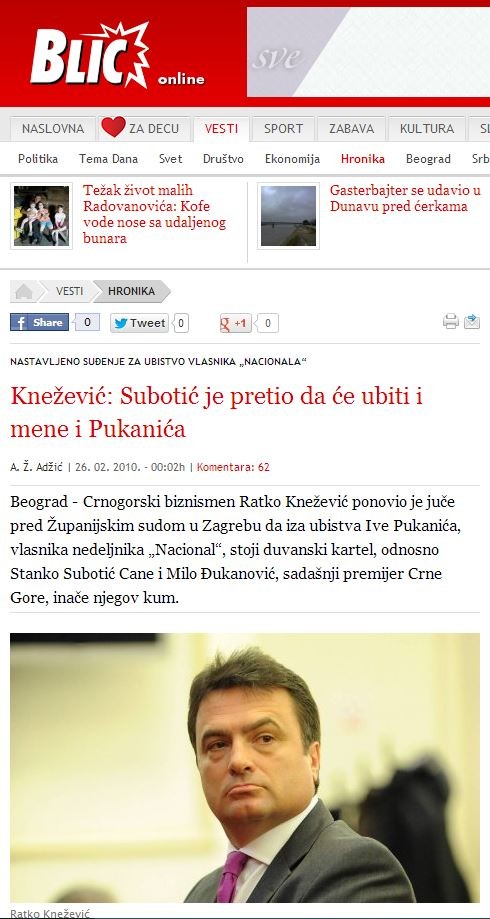
The very next day, Stjepan Mesić denied Knežević's claims that he handed over to Boris Tadić the materials related to his vulnerability. "I met my colleague Boris Tadić with the existence of a group of criminals and gangsters who are covered by the investigation in Croatia and recommended that it would be good to include them in the investigation of the murder of Ivo Pukanić and engage their services," Mesić said on that occasion. He added that on this occasion he brought no documents, but that he asked of Tadić asked for "a much better cooperation between the courts, police and prosecutors of the two countries, since the criminals of Croatia and Serbia cooperate so well." Mesic's request seriously brought into question the official statements of the two police that have publicly praised the "exceptional mutual cooperation in the investigation of the murder of Pukanić." [32]
Despite Mesic's clarification, "Blic" and his journalist Tamara Marković Subota continued, on 29th July, the initiated campaign with the text "Mesić: I warned Tadić about the Mafia", in which the wrong meaning of the words of the President of Croatia was seriously twisted. At the same time, the opportunity was used to reiterate the accusations that Ratko Knežević stated on a daily basis, against the Prime Minister of Montenegro. [33]
The campaign reached a climax on July 31st, with the text "Subotić and Joca met in a villa in Bar before the assassination of Pukanić", in which the author, citing an anonymous police source, actually transferred the information given to her by the director of the Serbian police, Milorad Veljović, after the meeting with his Croatian counterpart Oliver Grbić. Despite the lack of evidence, the author made insinuations about the meetings of Subotić and Jocić in Montenegro, which suggested Subotić’s involvement in the liquidation of Pukanić. [34]
The short-term summer lull in the campaign, was interrupted again by Ratko Knežević, when, on August 12th, in the article in "Blic with the headline "Cane and Đukanović eliminated all opponents", he reiterated his unsubstantiated accusations against Stanko Subotić and Prime Minister Đukanović. [35] Two days later, in the text of Vuk Z. Cvijić, "Blic" published the information from the top of the Serbian police, that all the statements of Knežević would be questioned, and that the police were determined to discover the truth about the business of Stanko Subotić. [36]
In order to continue the campaign, the media used the statement given by Ratko Knežević to the representatives of the Serbian Prosecutor's Office at the headquarters of USKOK in Zagreb. "Pukanić was killed by the tobacco clan", [37] "Tobacco mafia killed Pukanić," [38] "Knežević testified about the murder of Pukanić," [39] were some of the headlines that filled the front pages of the press during those days of October. Unlike the Serbian and Montenegrin opposition media, the court in Zagreb later rejected Knežević's testimony because his findings were based solely on media reports that were made with him largely participating in the creation process.
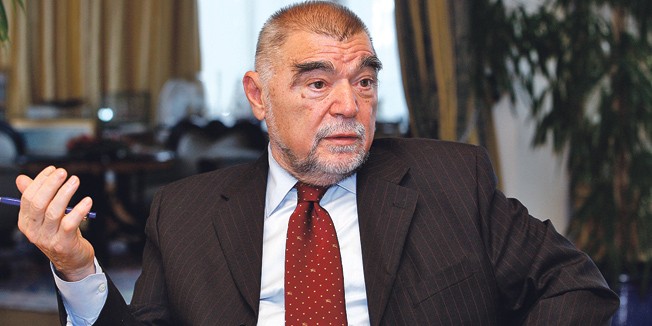
Three days after the Special Prosecutor's Office in Belgrade filed an indictment against Sreten Jocić, the tabloid "Press" published on October 29th, an article entitled "Jocić offers a deal?!", in which, referring to the "well-informed sources," the alleged information was published stating that Jocić, via intermediaries, offered a settlement to the Serbian authorities. According to the allegations, he said that he was ready to reveal the person who ordered the murder of Ivo Pukanić if he would be guaranteed not to get more than 10 years! As in many previous cases, it turned out that this information either was not correct. [40]
In mid-November, the Belgrade tabloid "Kurir", as sensational, cited the claims of "Nacional" about the alleged meeting of Stanko Subotić and Milo Đukanović in Geneva. Although there was no evidence for that, Zagreb weekly, brought this meeting in connection with the testimony of Ratko Knežević in the case of Ivo Pukanić’s murder. [41]
In early 2010, precisely on 26th January, the Croatian Supreme Court ruled that Željko Milovanović, the suspect in placing an explosive device that killed the co-owner of the weekly "Nacional" Ivo Pukanić and his associate Niko Franjić, would be tried in Zagreb. By making the decision to have the same person tried in for the same offense, in two parallel separate trials and in two different states, in practice, once again denied the fairy tale about the high level of cooperation of the investigating authorities of the two countries. [42]
In late February, Ratko Knežević finally testified before the County Court in Zagreb, and on that occasion he repeated accusations that he had previously declared in public – that, allegedly, Đukanović and Subotić ordered the murder of Pukanić. Unlike the regional media that cited Knežević's allegations without any delay and verification, the court in Zagreb rejected his testimony as completely unreliable. [43]
On 26th April 2010, Tamara Marković Subota published in "Blic" an article with the headline: "Jocić warned Čume and Subotić", in which he stated that, during the trial, the accused delivered certain encrypted messages. According to these allegations, the mentioning of the family Osmani by Jocić, was hiding a warning for the protected witness Ljubiša Buha and the businessmen who dealt with this crime clan. [44]
In the campaign against Milo Đukanović and Montenegrin authorities, Serbian tabloid "Kurir" also used Pukanić’s sister Anka, who gave a statement for this paper, discovering her belief that behind the murder of her brother "were former Montenegrin Prime Minister Milo Đukanović and Stanko Subotić Cane, on trial in Belgrade as the leader of the tobacco mafia ". [45]
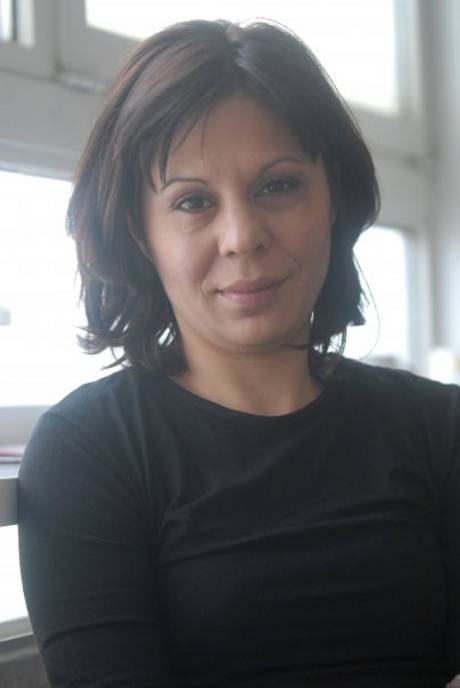
Referring to the Croatian media speculations, the tabloid "Kurir" published on 13th February, 2011, an article with the headline: "The Šarićs paid off the killers of Pukanić!", stating that "just before the assassination, the indicted for the murder were paid a greater sum of money from the account of a company owned by Duško Šarić, as well as from an account of one bank in Cyprus ". [46]
In late March 2012, the newspaper "Pravda" published an article with the headline: "Joca Amsterdam threatened to kill Karamarko?", outlining the alleged findings that Sreten Jocić from prison threatened to kill former Interior Affairs Minister and one of the candidates for president of the HDZ party . [47] On 30th March, 2012, “Večernje novosti” published the text on the same topic: "Joca scared Croatian minister". [48]
At the main hearing held on 23rd April 2012, Sreten Jocić said that the delegates of the Police Director Milorad Veljović asked him to accuse Milo Đukanović and Stanko Subotić for the murder of Pukanić. The tabloid "Kurir" on this occasion published the article: "I did not want to falsely accuse Milo and Cane". [49] According to the subsequently published transcript of Jocić addressing the Trial Chamber, he told the court that, on this occasion, the representatives of the police offered him in return, the release of all existing charges and his transfer to Costa Rica. Although on this occasion Jocić, made extremely serious accusations against the investigating authorities, this was never investigated. (Transcript)
Stating that the prosecutor offered no evidence to substantiate the charges against Sreten Jocić, on 2nd April 2014, the Special Court in Belgrade, decided to acquit him of the charges. On that occasion, the Court sentenced Željko Milovanović to 40 years in prison as a direct perpetrator of the murder, and for assisting in the assassination, Milenko Kuzmanović got five years in prison. [50] Less than a year later, on March 2nd 2015, the Court of Appeal in Belgrade confirmed the decision to free Jocić, making the final judgement in his case. The Court also upheld Milovanović’s sentence of 40 years in prison, while a retrial was ordered in the case of Kuzmanović. [51]
The "Tobacco Affair" and Black Cash Register of "Nacional"
Ivo Pukanić, was the owner of the tabloid "Nacional" that he launched in 1995, along with the journalist Denis Kuljiš, but later their ways parted. By means of scandalous texts and affairs in which he often participated, he managed to bring his own name and the name of "Nacional" in connection with controversial businessmen, politicians, social cream and underground in Croatia, Serbia and Montenegro. Pukanić boasted that he was a close friend with Hrvoje Petrač, who was arrested for kidnapping the son of General Vladimir Zagorec. He was also close with Tomislav Karamarko and Ratko Knežević. He was the only journalist who did the interview with Ante Gotovina while he was still on the run because of the indictment of the ICTY. Pukanić was also characterized by boasting in public about his "friendships" with influential people in different positions. Pukanić was often accused as the person who used his newspaper for racketeering and blackmail, in such a way that he asked for money in exchange for not publishing the compromising things about certain persons. However, he was also the target of the media writings because of the problems with his wife, who accused him of taking her child away, of abusing her and of wanting to present her as mentally ill because of material interest. She even accused him that she was under duress taken to a psychiatric hospital. The Croatian Journalists' Association in 2005 proclaimed Pukanić journalist of the year.
As a participant of many affairs, he will be remembered for creating the "tobacco affair", which is echoed in the whole region of the former Yugoslavia. Many media in Croatia, Serbia and Montenegro passed on the writings of "Nacional" at that time, without verifying the facts that the tabloid presented in public. Pukanić’s close friends, Petrač and Knežević, are also being connected with the "tobacco affair", and, with which he managed to usurp the media space of Croatia, Serbia and Montenegro for forty weeks. The "tobacco affair" was preceded by the fact that after the first democratic changes in Serbia in October 2000, the illegal flows of cigarettes were not stopped. The leftovers of the regime of Slobodan Milošević tried to protect the political and financial interests of the Milošević family, and one of the biggest obstacles in their way was the Serbian government headed by Zoran Đinđić. It was a sufficient motive for the tobacco lobby to launch various affairs and scandals, starting from the charges of murder, to those that were related to smuggling, all that in the attempt to weaken or even overthrow the democratically elected reformist government in Serbia and Montenegro. In early May 2001, the Prime Minister Zoran Đinđić said that the construction of a tobacco factory in Serbia was planned and that the multinational tobacco company "British American Tobacco", would be an investor. The construction of the factory and control of tobacco was supposed to serve for regulation of the market and prevention of the smuggling of cigarettes in Serbia and Montenegro. This statement was a big surprise and scared the interests of the Croatian tobacco industry, because they, at that time, they held about 40 percent of the black market with their products. The rest of the illegal market belonged to the company "Japan Tobacco International".
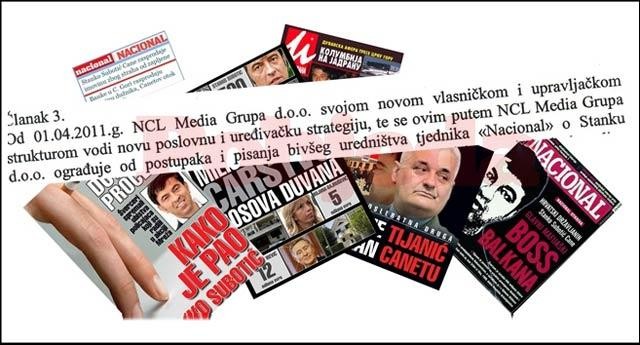
According to Pukanić’s statements, his interest in the "tobacco affair" allegedly began in 2001, when accidentally met the Croatian singer Alka Vuica while the traveling by plane. The two of them talked on the plane and Alka allegedly started talking about her New Year's Eve singing in Sveti Stefan at a party where Milo Đukanović was present as well. Pukanić claimed that party was organized and paid by Stanko Subotić, a Swiss businessman of Serbian origin. The entire party was extremely lavish, attended by many politicians and businessmen of Montenegro and Vuica flew to Montenegro by Subotić’s private plane. After that, Pukanić started to make inquiries the identity of Stanko Subotić. In the spring of 2001, the Croatian weekly "Nacional" published the so-called "tobacco affair" series of commissioned texts, in which legally elected state leadership of Serbia and Montenegro were under attack. The main target of the attack in the writings of "Nacional" was Stanko Subotić, who dealt with the legal distribution of cigarettes and as such, represented a competition to "Rovinj Tobacco Factory" (Cro. “Tvornica duvana Rovinj”- TDR). As shown by numerous subsequent trials on accusations that Subotić filed against "Nacional", the plan of the "tobacco scandal" initiator, was to smear Subotić’s name in the media as much as possible, to have him attributed with false accusations of crime, murder, smuggling and, by using him, to criminalize the legally elected leadership of Serbia and Montenegro, especially his personal friends Milo Đukanović and Zoran Đinđić. Relying on the intelligence information, some media reported that it must have been somebody from TDR standing behind the campaign that was launched against Subotić, Đukanović and Đinđić. The first articles appeared in the Croatian newspaper "The Republic", and from there they were taken and cited by "Nacional". Both papers were owned by Ivo Pukanić, who together with his friend Ratko Knežević (otherwise discarded former associate Milo Đukanović), tried to prove that the articles published in "Nacional" were substantiated by investigations and that they had evidence for all of these claims. Alka Vuica later denied Pukanić's allegations about her, but in a well-organized media lynch, her denial almost passed as unrecorded by the media.
Referring to the Croatian intelligence, now reportedly owned by Serbian authorities, too, some media claimed that during the affair, Ivo Pukanić depended financially on the money from Knežević, which Knežević gathered in Serbia from the followers of the former Milošević regime. Pukanić explained that in addition to the information received from Knežević, a part of the information is received from the US ambassador in Belgrade, William Montgomery. At that moment, one of the many theories was launched in public, claiming that the Americans allegedly, by using their ambassador, wanted to put pressure on Đukanović to mitigate his positions concerning the independence of Montenegro, but also the smuggling of cigarettes. Therefore, allegedly, the US embassy provided "Nacional" with intelligence on Subotić. Subsequent developments showed, however, that, working behind the back of the State Department, Montgomery acted in his personal interest, grossly abusing the diplomatic function he was entrusted with. Upon the completion of his duties in Belgrade, Montgomery would be remembered as the only American ambassador who refused to return home to his own country, deciding to settle permanently in the region in which for several mandates, he exercised his diplomatic service and where he strongly developed his own private commercial affairs.
Due to his private business interests, via his boss of the CIA station in Belgrade Gabriel Escobar, Montgomery provided Pukanić with alleged confidential information of the CIA, in order to discourage Milo Đukanović in 2001 to conduct the secession of Montenegro. That was the moment when Zoran Đinđić was squeezed into the story, so that he would give in to the demands of TDR to obtain a permit for construction of a tobacco factory in Čačak. In his dirty business, Montgomery was linked to, at the time, the Đinđić's political opponents in Serbia, but also with a number of groups of interest in Serbia and Croatia, where he later settled permanently in his house in Cavtat. The political opponents of Zoran Đinđić in the opposition, some media and security services, used this in the campaign against the Government of Serbia and further created confusion about "tobacco affair" by offering additional untruths and unverified information.
Italian anti-mafia prosecutor Giuseppe Scelzi from Bari, who led the investigation on the international cigarette smuggling, heard the testimony of Ivo Pukanić in Trieste on 10th July 2002, regarding the Italian criminal case 742 / 99-21. "Nacional" from Zagreb released that record in 2009, after the assassination of Pukanić, and later it was cited by the Belgrade weekly "Vreme". From this evidence it can be seen that Pukanić did not have first-class information. Most of the data that had or were either hearsay or originated from not-so-reliable speakers. A version of the story with the singer Alka Vuica on the plane was told, and Pukanić also often mentioned Ratko Knežević, whom he praised as a reliable speaker regarding the "tobacco affair". He also spoke of his friendship with the US Ambassador to Belgrade, William Montgomery. At the end of the testimony, Pukanić pronounced two important sentences from which the true goal of the launch of the tobacco affair, can be clearly discerned. "Montgomery congratulated for ending Milo Đukanović's political career ended with this article," said Pukanić and then added: "It might happen that Đukanović will last for another year, year and a half, we should see what will happen with Zoran Đinđić."
Croatian journalist Domagoj Margetić wrote the book "The Case of Pukanić - Murder Signed by the State", providing a different view of the murder of Pukanić, whose parts were published by the Belgrade weekly "Tabloid", giving a different view on the so-called "tobacco affair". Referring to the documentation of the Croatian intelligence services, Margetić linked Ratko Knežević with a criminal organization of Hrvoje Petrač, stating at the same time that Knežević was an associate of Croatian security services and that on that basis, he received Croatian citizenship. Knežević is considered Petrač’s key man in the illegal business of international cigarette smuggling. The main goal of "Nacional" media campaign against the "tobacco mafia" in Montenegro, was not, as it was misrepresented, the disclosure of international crime chain for cigarette smuggling through the Balkans, but the concealment of the existence of the organizational structure of the tobacco mafia in Croatia and concealing of criminal tobacco operations, at that time, controlled by Petrač`s criminal organization.
This reporter did not consider it a coincidence that the date for the start of the campaign of the tobacco affair, coincides with the beginning of the process of taking over the infrastructure of the Balkan tobacco mafia by a criminal clan Osmani, controlled by Qazim Osmani, aka Felix. The fact that Ekrem Luka, the head of the Kosovo tobacco mafia and one of the main people of the Osmani crime clan in Kosovo, was at the same time the representative of Rovinj Tobacco Factory in Kosovo, speaks for itself, as Margetić said referring to the reports of the German intelligence service BND.
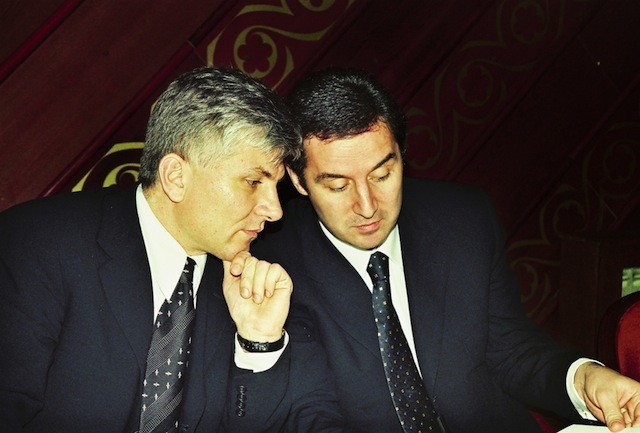
The fact that TDR for its representative in Kosovo chose Ekrem Luka, represents the main liaison of "Rovinj Tobacco Factory" and "Adris Group" with the Balkan tobacco mafia and Osmani crime clan. Since the first Osmani operations of taking over the tobacco business in the Balkans could have been severely affected by the international investigation against the tobacco mafia in Croatia, namely the investigation in which under criminal investigation were Hrvoje Petrač and Ratko Knežević, the campaign "tobacco affair “was launched in "Nacional". Margetić said that there were even indications that Ivo Pukanić was killed because he posed a threat to criminals and corrupt politicians in Croatia who were on the payroll of the family Osmani. Many thought that Pukanić gained his wealth through his media racketeering, which means that he asked for money or services in order not to reveal certain information or by launching the pre-ordered affairs in return for the big money. It was assumed that the murders of Ivana Hodak and Ivo Pukanić, which occurred in the time difference of twenty days, were connected.
After the first instance verdict in Zagreb, a former journalist of "Nacional", Jasna Babić made a very interesting analysis of the murder of Pukanić on the Internet portal "Oko.hr". Under the headline "Why I don’t believe in Bajić, Karamarko and Montenegrin mafia", Babić stated that neither a motive, nor the principal of the murder, was confirmed. She opened the question of the role of Niko Franjić, marketing director, in Pukanić’spublic and secret dealings. That’s why she criticized the investigation for not dealing with Franjić and revealed that in the nineties, he worked for secret services, and that after having finished his tasks, he emigrated to Latin America, then, as required, he placed himself at Pukanić’s disposal and provided false Latin American stamps for fake passport of Ante Gotovina, helping cover up his local helpers in front of the Hague tribunal. Jasna Babić further said that the State Prosecutor Bajić and Interior Affairs Minister Karamarko never thought of investigating a black treasury of "Nacional", for which she argued that it existed and that the money there was enough to pay for approximately ten percent of the shares in cash. Instead, the Montenegrin "tobacco mafia", which "Nacional" dealt with back in 2001 and in 2002, became the next most possible person ordering Pukanić's murder, because it was most distant from the Croatian mafia tycoon-scene and any exploration criminal logic, as considered by this journalist. She also pointed out that “Ivo Pukanić published the smallest number of texts on the tobacco mafia". “The few were written by me," Babić said, and then the series was taken over by Berislav Jelinić. When the investigation was opened in Italy, all three journalists were summoned as witnesses. Jasna Babić saved her call for a hearing before Italian investigative bodies and handed it to Rajko Mlinarić, the lawyer of Slobodan Đurović, hoping that all the absurdity of the indictment, which, according to her, was hiding the truth about the murder of Pukanić, would be discovered before the Trial Chamber. Babić concluded the analysis by asking "what kind of mafia savviness liquidates Pukanić, without killing two authors and two witnesses?"
After the investigation, Jasna Babić raised the issue of the content of Pukanić`s two safes. The police reportedly opened safes by commission procedure, but did not report the public about their content. Several years later, this journalist revealed that the safe was found a document from 2005, which dealt with Gotovina's network of partners, and ways of how to force them to cooperate. The name of the document was "The proposal to improve cooperation on the occasion of the Gotovina case" and included the names of the two Anglo-Saxon intelligences named Lungley and Walton.
On the occasion of the charges set forth on his account, in the series of "Nacional" on "tobacco affair", Stanko Subotić filed several suits against Pukanić and his weekly. The court in Zagreb fined the weekly with 40,000 HRK on the basis of the complaint of Subotić. Following the murder of Pukanić, the Croatian weekly "Nacional" in 2012 distanced itself from accusations that it presented in its writings against Subotić. The legal team of Subotić publicly stated that the two sides signed an agreement out of the court. By means of this agreement, "NCL Media Group Ltd." distanced itself from the actions and writings of the old editorial board, about businessman Stanko Subotić published in all its print and electronic publications. They also agreed that the weekly would remove from its website all the articles related to Subotić and the so-called "tobacco affair". In exchange, Subotić withdrew all lawsuits against Nacional and dropped the requirement that the weekly should publish the verdicts already reached in his favour, at the expense of the newspapers.
Ratko Knežević, one of the witnesses in Pukanić case, made statements at the trial in Zagreb that were supposed to link Stanko Subotić, Montenegrin state leadership and other individuals, with the murder of Pukanić in Zagreb. The media had a big role in this case, as they created a sensation out of every Knežević’s statement.
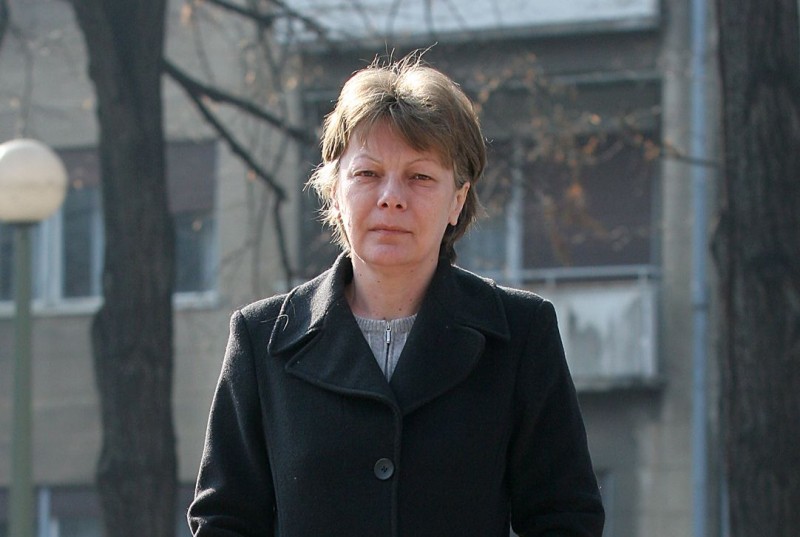
In spite of the fact that Ratko Knežević, is in the Montenegrin opposition circles considered a "reputable businessman and international lobbyist from Montenegro", outside that community of interest, he is mainly linked to criminal groups and their leaders. During the nineties, Knežević was the trade representative of Montenegro in Washington, and at that time, he was still close to Prime Minister Milo Đukanović. The Belgrade weekly "Vreme", on 6th August 2009, wrote that the British customs accused Knežević of violating the UN and EU sanctions, because he used his company in London and Switzerland, to smuggle around five million pounds worth of weapons and military equipment, which included armoured vehicles, cases for weapons, 30 cryptographic protected radio devices, 15 protected fax machine and three speedboats. The British Customs authorities arrested him in 1997 after a fight with Đukanović, when he returned from Washington to London. He was released on bail and immediately disappeared, while in 1999 an arrest warrant for him was still in force. The reason for dissatisfaction of the British customs authorities was the political intervention of the former Prime Minister Tony Blair in favour of Knežević. "The Times" published that the intervention of the British Prime Minister was credited to Milo Đukanović.
In 1995-1996, Ratko Knežević appeared in Moscow, where he was involved in the illegal import of cigarettes in the Russian Federation, but also in some shady dealings with the Russian surplus weapons. He was in contact with Hrvoje Petrač, who was suspected of leading a criminal organization in Croatia, who then wanted to expand its business activities and to enter into the arms trade business. According to the journalist of "Versija" Eugene Krutikov, the means of payment for the weapons were ships full of counterfeit cigarettes of big tobacco multinationals. After the writings of "Versija", Knežević disappeared from the hotel where he was staying in Moscow, leaving behind unpaid bills in the amount of $ 15,000. The investigation of Russian journalists showed that Knežević was in contact with JTI, Volf Minić, the Cypriot businessman Andreas Neofiduo, but also with a number of phantom companies from Cyprus and the Middle East such as "IBCS Ise Aude", "European Tobacco" of Nazir Khan, "Imperial Tobacco", "Prima Trading Ventures" of brothers Jankowski from the Virgin Islands,"Albatroniks" of Ekrem Luka and "Feroglas" from Lichtenstein. Cigarettes were coming to Russia either through Turkey and Iraq, or across the Baltic Sea, or through Ukraine. The barges full of counterfeit cigarette brands, also went from Germany, via the Baltic Sea, to Georgia, with false papers.
One of the friends Knežević often boasted of, was his godfather Vlastimir Zečević, known as Mićko Talijan (Mićko the Italian). Talijan was liquidated during the nineties in the centre of Budva, under mysterious circumstances. Later, one more Knežević’s friend, Blagota Baja Sekulić, was murdered in Budva. According to the available sources, Sekulić was murdered just one day after the publishing of interview in the Montenegrin weekly "Monitor", in which it was stated that, by using Sekulić, Knežević tried to blackmail Stanko Subotić, by asking him for money for stopping the publishing of texts on cigarette smuggling in “Nacional". In addition, Sekulić was an important witness before the Republic Prosecutor’s Office in Serbia that started an investigation of Knežević for extortion and racketeering. After the first texts published in Pukanić's "Republic" on the "tobacco affair", Knežević wrote a letter to the former Prime Minister of Montenegro, Milo Đukanović, explaining that Subotić allegedly sent him threatening messages, stating explicitly that he had nothing to do with the texts that appeared in the newspapers of Pukanić. This letter, as a bombshell, was cited by all respectable Belgrade media at the time. As the media reported then, the letter was submitted to them by Borivoje Borović, Belgrade lawyer of Montenegrin origin, known for having represented Serbian and Montenegrin criminals. Knežević introduced Borović as his attorney, although he had never represented him in any case. Eight years after it has been created, in October 2009, this letter was delivered to USKOK in Zagreb that was working on shedding the light on all the circumstances surrounding the murder of Ivo Pukanić.
As the main "insider" in the tobacco affair, Knežević and Pukanić found Srećko Kestner, one of the participants in the tobacco business in the Balkans, who, on the pages of "Nacional", widely talked about his alleged knowledge of smuggling cigarettes, stating that Stanko Subotić corrupted top people of Serbia and Montenegro, Đinđić and Đukanović. Just a few months later, in February 2002, Kestner gave an interview to "Vijesti" in which he admitted that the whole affair in "Nacional," was created by “the political circle”, led by Ratko Knežević, and that he never said what was published in the" Nacional", that he had never seen Milo Đukanović, that Pukanić connected him with Knežević, that Stanko Subotić never got engaged in smuggling, that the whole affair was a fight of Ratko Knežević to gain power in Montenegro. As reported by "Vijesti" from Podgorica, while he was persuading Kestner to give an interview for "Nacional", Knežević giving served him with constructions, lies, misinformation, convincing him that behind this "whole thing" stood the strongest power in the world, America, that he was in constant contact with the USA Ambassador Montgomery, that their (Kestner’s and Knežević’s) five minutes would come only when Đukanović and Subotić have ended up behind bars.
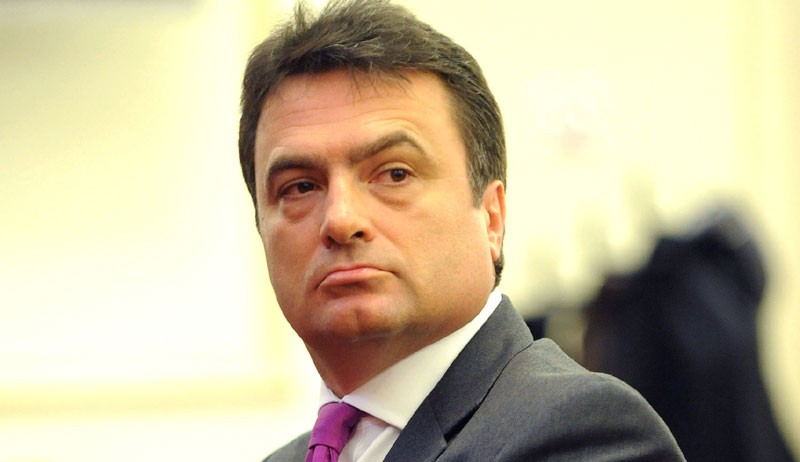
The "tobacco affair" lasted for more than 40 weeks. Serbian and Montenegrin media competed in being the first on to cite the accusations launched in the "Nacional". The spin of this affair occurred when the Belgrade weekly "Nedeljni Telegraf" published transcripts of intercepted conversations of the mafia boss Hrvoje Petrač, that were collected in the actions to fight organized crime by the Croatian state authorities, as ordered by the Special Prosecutor Radovan Ortinski. "The affair Petrač" depicted how Croatia, by using her mafia, established contacts and connections with Serbian organized crime, in order to make big profits and make the political damage to legally elected authorities in Serbia and Montenegro. The transcripts showed that Hrvoje Petrač was engaged in smuggling of drugs, weapons, and tobacco. The publication of the transcripts revealed the strong links between Knežević and mafia boss Petrač (currently serving a prison sentence). It was found that Ratko Knežević and his wife lived in an apartment owned by Petrač and that at that they were duly registered at that address (Pantovčak 196, Zagreb).The transcripts showed that Knežević was directly involved in the Petrač’s negotiations on tobacco smuggling. The document of the Croatian prosecutor stated:
"At 20h, Petrač called Ratko. Ratko said they would arrive tomorrow night, but that he didn’t talk to Puki regarding Čačić (Radimir, the Minister of the Government). On another phone, Petrač was talking to Puki and communicated the conversation to Ratko. Puki sad that the day before, there was a meeting of the government and that the Čačić wanted to leave the session because he didn’t receive any money from the budget. Petrač suggested to meet with Čačić because maybe they would be able to provide him with the money for road construction. Ratko claimed to be sitting with a friend from Nikšić who lived in Lugano and talking regarding the products they worked with. Petrač asked whether he had the original red (probably Marlboro). Petrač said he had customers for that and asked if Antwerp would be a possible delivery point. Unidentified person confirmed that would be possible."
The biography of Ratko Knežević is certainly an interesting one. His career began as a marketing representative small of a Balkan state in Washington, but later he was involved in the trafficking of arms and cigarette smuggling. He appeared as a witness along with Ivo Pukanić before the anti-mafia prosecutor in Italy, where he spoke about the so-called tobacco mafia in Serbia and Montenegro; he also testified in the trial for Pukanić’s murder, where he made similar accusations just like before of the Italians. In his testimony, Knežević had no material evidence that could support the accusations he made, but only personal evidence as an insider who was involved in the smuggling of cigarettes. His contacts with various people from the criminal underground in the former Yugoslavia, were recorded. Based on the police sources, the media often associated him with criminal organizations in Croatia, Montenegro, Kosovo, but also in Russia and the Middle East. According to the press, he has the citizenship of Montenegro, Croatian and Great Britain, and it is assumed that he is the associate of various security services in the Balkans, and perhaps in the world. He appears as a lobbyist of Montenegrin opposition in Washington.
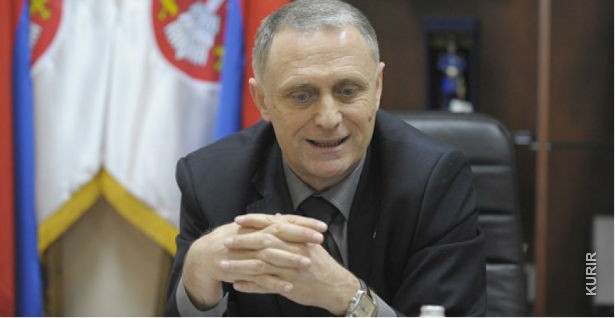
Such biographical data indicate an interesting person, in terms of security, who certainly has many data and information, but unfortunately with little credibility, because of the contacts and the nature of his work. Knežević is certainly an experienced lobbyist and expert on corporate intelligence, but he is very likely to be involved in some illegal activities, because the British have already once issued a warrant for his arrest. It is strange that in his testimony before the Italian investigators about the so-called "tobacco mafia" in Montenegro and Serbia, when Knežević's contacts with Hrvoje Petrač in Zagreb were recorded, who was also associated with the smuggling of cigarettes. Ratko Knežević is a person who plays multiple roles, a lobbyist suspected arms dealer, collaborator and witness of the investigating authorities, as well as a person with contacts in the criminal underworld, which does not qualify him for a reliable witness in court proceedings. Serbian Special Prosecutor’s Office for Organized Crime Miljko Radisavljević, had to admit this, though, reluctantly, who first heard Knežević's testimony, but the Prosecution later decided not to invite him as a witness in the Pukanić’s murder trial before the Special Court in Belgrade. This, however, did not constitute an obstacle to national and regional media to continue to cite his unfounded accusations without any delay.
Epilogue
The court in Zagreb sentenced the direct perpetrators of the murder of Ivo Pukanić and Niko Franjić. The material evidence, such as forensic traces, security camera recordings, weapons and expertise of their mutual telephone communication, confirmed that and supported the testimony of the only cooperating witness in this case. The court failed to establish the motive and to reveal those who ordered the assassination. It seems that the more complicated, more unpleasant, more difficult to be proved part of the job was left for Belgrade, where the prosecutor tried unsuccessfully to prove that the organizer and the principal of the controversial murder of Croatian journalist, was Sreten Jocić. It remains unclear why the courts in both countries tried Milovanović as the direct perpetrator of the murder, instead of having the competent authorities of the two countries agree on the subject matter jurisdiction and conduct the proceedings against him. It is not clear how the Milenko Kuzmanović was convicted in Belgrade, but was released for lack of evidence in Croatia?
The headlines created the idea that the investigating authorities knew much more than they actually managed to prove. Not only that Slobodan Đurović was incriminated by the cooperating witness with his statement, but he was also linked to the because of his telephone communication with them. Some of the media in Belgrade and Zagreb wrote about an intercepted telephone conversation between Đurović and Jocić, what indicated the possibility that Jocić was involved in a double murder. That conversation, as evidence, was never submitted to the court. This is why there was a suspicion that someone who was involved the investigation, intentionally gave false information to journalists in order to influence the public opinion. Although it is undisputed that the wire tapping, as an investigative technique a and means of attestation, is extremely useful in complex crimes that are related to organized crime, two types of interception should be distinguished - one that is used for intelligence purposes and another that is used in criminal investigations and attestation, which must be done strictly according to the provisions of the law on criminal procedure for the court to accepted it as evidence. It is possible that the investigation had more indications and operational data, than evidence in the later course, precisely because of illegal wiretapping, which in turn opens up an entirely different kind of problem, which is reflected in the unlawful conduct of investigative and security services.
We return again to the question of the motive, which was not identified and which is extremely important for the detection of those who ordered the murder. The indictment in Croatia, rather unconvincingly, claimed that the motive for the killing was the so-called "tobacco affair", which "National" launched in 2001 and the testimony of Pukanić before the Italian investigating judge. Pukanić then accused the Prime Ministers Zoran Đinđić and Milo Đukanović, and stated that Stanko Subotić was one of the main bosses of organized crime. However, "Nacional" lost several disputes for writing these articles, and even had to pay a fine. Pukanić's testimony in Italy did not contain important and reliable information. A small number of Croatian and Serbian journalists, who studied in detail the so-called "tobacco affair" and who were seriously involved in investigative journalism, say this theory does not really hold water. Based on the performance of individual politicians, prosecutors and writings of the media, it seems as if the public attention was deliberately and continuously guided in the wrong direction. Since it is certain that the Croatian police and the Prosecutor's Office had several versions in terms of motives for the committing of this crime, it is unclear why it was insisted on the so-called "tobacco scandal", although there was no material evidence to justify such an assumption? One part of the team of the murderers was from the territory of Serbia, but there was no sufficient evidence for such a claim. Given these circumstances, a part of the public in the region raised a logical question, asking whether it was possible that the "tobacco affair" was used as a motive for the killing, only to divert attention from another, real, motive.
Pukanić was considered to be a journalist racketeer, involved in various affairs and certainly had a variety of compromising information and a lot of enemies. Pukanić survived the first murder attempt, got security protection from the state, which was later cancelled, because it was estimated he was no longer in danger. It is not known whether it was investigated who ordered that he should longer be protected and on what basis. Perhaps this was done out of ignorance, and perhaps not. Pukanić apparently felt threatened because he planned to go to the USA. After the first unsuccessful murder attempt, he said he was the victim of threats and attempted extortion, which also could have been of interest to the investigation. According to some headlines, he was getting ready to sell the majority stake of "Nacional". In SMS messages he sent to the State Prosecutor Bajić, which the Court released, it can be seen that Pukanić claimed that he had information about various offenses. The State Prosecutor, as evidenced by SMS, immediately made an appointment with Pukanić. The public has not learned whether this meeting took place and if it did, what kind of information Pukanić had regarding the "case of Hodak". Croatian journalist Domagoj Margetić, as we have shown in this article, argues that the two murders are connected and accuses the Croatian and Albanian criminal organizations for their execution, but he does not provide concrete evidence for these claims except references to unnamed "reliable sources".
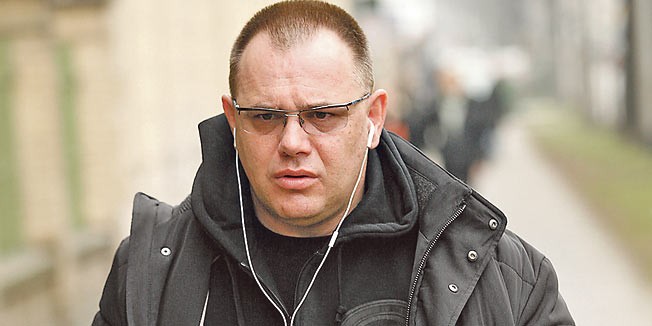
Former journalist of “Nacional”, Jasna Babić, stated as a possible motive the real estate and black funds. She claims that "Nacional" had such funds and that they were hefty. She also raises the question of why the "tobacco mafia" would kill Pukanić, and without killing the other journalists of the publisher who dealt with the subject of cigarette smuggling. Babić underscored another assassination victim, Niko Franjić, for whom she claims to have worked for the Croatian secret service in the nineties and who, as assigned, made himself available and assisted in hiding Ante Gotovina. Although these claims are not supported by material evidence, is the fact that has never been denied by Croatian agencies.
Security services are another interesting segment of the entire case. Many of those convicted of murder have bragged to have been associates of the secret services; Milovanović was even a member of the "Red Berets". Convicted Amir Mafalani reported the Zagreb police inspector that a murder was about to happen, but the inspector did not forward this to his superiors. Slobodan Đurović is a former military intelligence officer, and his lawyer was once the Chief of Bureau for Combating Corruption and Organized Crime in Zagreb (Cro. Ured za suzbijanje korupcije i organizovanog kriminala - USKOK). Ratko Knežević testified as summoned by USKOK, and because of the nature of his business, it was not impossible for him to work with a variety of security services. It was claimed that Sreten Jocić was under the protection of Jovica Stanišić in the nineties in Serbia, and he claimed during the trial that he cooperated with several intelligence services.
Here we come to the scary truth: the murder of Pukanić actually proved interconnection and intertwinement between the criminal organizations in former Yugoslavia, as well as the involvement of former members of the security structures, and possibly of the active structure of secret services in this region. The collapse of Yugoslavia and the embargo against the FRY, the trade between the warring parties continued, but on the black market and under control of the army and secret services. This contributed to the creation of one pan-Balkan mafia organization, consisting of criminal organizations from the territory of each of the former Yugoslav republics. Pukanić and Franjić were killed in Zagreb, the killers were from Bosnia, Croatia and Serbia, and the ones that ordered the murder could be from any of the former Yugoslav republics. Although the media persistently placed the thesis that the murder was ordered from Montenegro, it is not excluded that the order came from Croatia, and the perpetrators were engaged from the neighbouring countries just to cover the traces.
The press coverage of the crime showed the disastrous state of affairs in the media. Most of the Croatian media uncritically accepted the official version about the Serbian-Montenegrin "tobacco mafia", regularly reported on the trial and sometimes criticized the security system of their country. There have been media attempts to connect the murder to the drug dealers of Pukanić's wife, but these allegations have been rejected by the majority of the public and professional circles. Some journalists, citing anonymous "well-informed" sources from the security services, connected the assassination with Croatian and Albanian criminal organizations. However, in support of this thesis are no solid material evidence was offered, nor did such reporting change the official course of the investigation and subsequent trial.
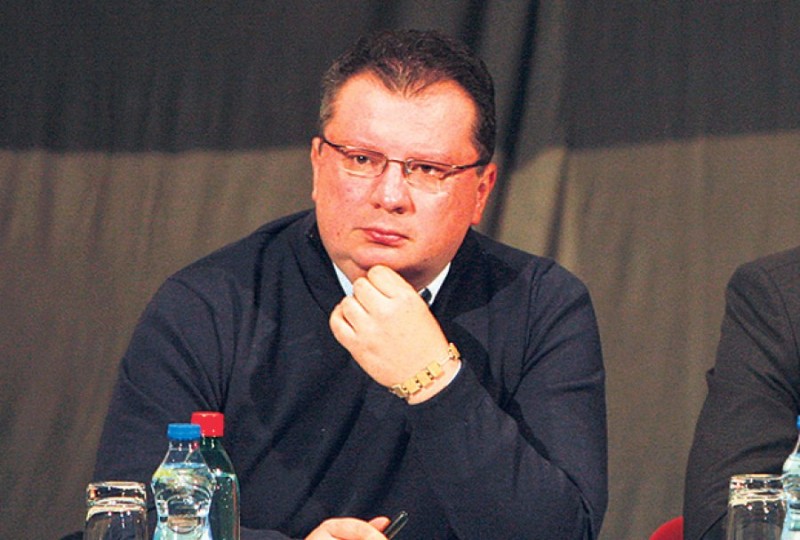
In Serbia, the situation was similar to that in Croatia. The arrests have been carried out in the presence of video and photo cameras. Several editorial offices referred to anonymous sources from the police and the Prosecutor's Office. Even before the official investigation transformed its findings into a criminal complaint, the media claimed Sreten Jocić was a possible murder organizer. Although the information that Jocić was suspected, turned out to be true, many published "news from the investigation", turned out to be false. This was particularly reflected in attempts to, via media, drag in Milo Đukanović and Stanko Subotić, which apparently was part of a political decision of the former Serbian state leadership. The political background of the media campaign was shown by the testimony of Jocić in which he stated that someone from the top of the Serbian police asked him accuse Đukanović and Subotić as principals of the assassination. The thesis about the person or persons ordering the murder and the possibility that Jocić could have been granted the status of the cooperative witness, was widely exploited by the media in Serbia. Such irresponsible and unprofessional conduct of the media was a direct consequence of the way in which they operated as a part of the coupling between the executive, the security services, Prosecutor’s Office, judiciary and the public media.
According to direct instructions and under the control of certain political and financial centres, the media were applying a well-established mechanism of discrediting certain individuals which, as a rule, began with the publication of false allegations through certain public media, which always relied on anonymous sources. After that, the media usually cited anonymous sources from the investigation and security services who confirmed that all the published allegations were true. Then, the political power centres would come on stage, mainly concentrated in the institutions of executive power, which would put pressure on the Prosecutor's Office and the police to begin with the investigation process against the discredited persons.
After the collapse of the process that ended with an acquittal of Sreten Jocić and de facto conclusion of the court, that his retraction in this case was without evidence and politically motivated, "Pukanić case" will be recorded as another striking example of abuse of the judiciary system and the media by the executive authorities, at that time, led by the former President, Boris Tadić, and his Democratic Party. Open presented coupling of the media, the police, the Prosecutor’s Office, the courts and the underground, demonstrated in practice a systemic rule of corrupt connections and habits, in which the ruling politicians had the opportunity to, for the sake of their personal or political goals, perform illegal things, causing immeasurable damage to the citizens of their countries. Only the costs of the investigation, engagement of the police, prosecutors, witnesses, the useless in court testimony of Ratko Knežević in Zagreb, cost the citizens of Serbia a great amount of the money spent in vain, measured in millions of euros. A particularly important point in this case is the question of responsibility, starting from the political bosses insisting to inject in the investigation those elements which, on the basis of available evidence, did not belong there, to the police and the Prosecutor's Office who tried to compensate their lack of results by publishing orchestrated information through the media, and finally, to the editors of the media who took part in an extremely dishonourable work. The fact that due to the omission, misuse and placing of falsehoods, no official of the former government, the Prosecutor's Office or the police, or an editor of the misused media has not been removed from office, indicates the complete absence of a system for determining the responsibility of decision makers, of those political decisions that were most important for the destiny of the entire society. Instead of asking questions to determine responsibility, the front pages of the media have been filled with new affairs, while the news of the collapse of the process that for several years has been in the focus of media attention, was placed quietly, shyly and without treatment that it deserved. In practice, it was once again proved that in this region, within the regional framework, the culture of oblivion still dominates over the culture and responsibility.
Problems in journalism and the media are a reflection of the overall situation in society. By connecting with various power centres that mainly originate from the intelligence and criminal milieu, journalists often try to compensate for the chronic deficit of investigative journalism, serious editorial staff and financially independent media. So it is no wonder that in reporting on serious crimes investigations, nobody takes care of the standards and requirements of the journalistic profession, nor of the truthfulness of the published information, but only about the interests of media financiers and centres of political power, who appear regularly as those ordering such spin news.
In the case of Ivo Pukanić, who was a product, but also the creator of the said situation, the coupling of the politics, intelligence and criminal structures and public media, played its darkest role. Pukanić was moving in the company of people from the world of politics, business, crime and intelligence services. His papers dealt with many sensitive issues, and he was often accused of media racketeering and writing well-paid, commissioned texts which were often not true. As such, many have been criticized during his career. Currently, in the countries of the region, there is no political will to uncover the motive for his murder, and without the pressure of the public opinion, there probably won’t be any. On the other hand, the pressure of public opinion also won’t exist as long as the media are not exempt from the dominant influence of politics and the hidden power centres, that have used the overall crisis of society in this region and the financial problems the media scene is facing, create a vicious circle of manipulation and lies, whose only aim is to disguise the unbridled rule of the particular group interests over the general interest of the society as a whole.
